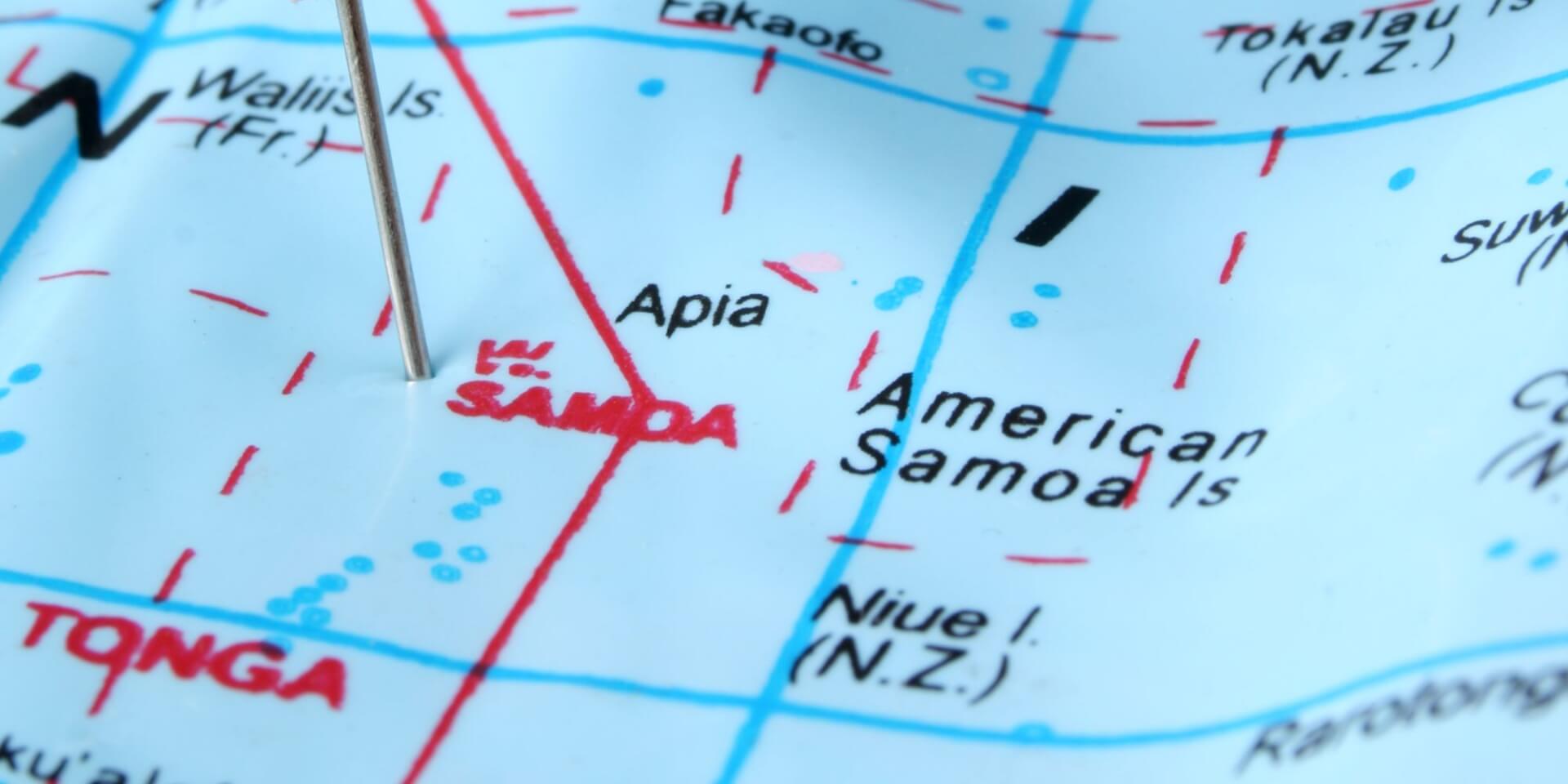
The International Science Council (ISC) partnered with the National University of Samoa, the Sasakawa Peace Foundation, and the Richard Lounsberry Foundation to facilitate a discussion about a possible science academy for the Pacific region, to listen to local needs and aspirations, and to help strengthen the regional voice of science.
The Pacific island states constitute a region that lacks a formal academy of scholars and well-established connections to the worldwide scientific community, which limits the engagement and participation of local scholars in global scientific endeavours. At the same time, the Global South stands to be most impacted in the rapidly changing environment. Specifically, the Pacific Island states and territories, along with other Small Island Development States (SIDS), are particularly susceptible to climate-related hazards.
The ISC recognizes the need to assist science and scholarship in the Pacific and to support new academies of sciences in underserved regions. This meeting aims to facilitate these needed discussions to probe the idea of establishing a regional academy for the Pacific.
The work of the ISC in the region is guided by its Regional Focal point for Asia and the Pacific, which ensures regional needs and priorities are adequately represented in the ISC’s global agenda, that regional voices are actively engaged in the governance and management of the ISC’s work, and that the region benefits from the results of that work.
Browse the agenda and access slides.
DAY 1: 24 October 2023
Moderators:
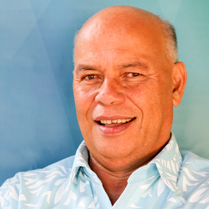
Sir Collin Tukuitonga
Associate Dean, University of Auckland
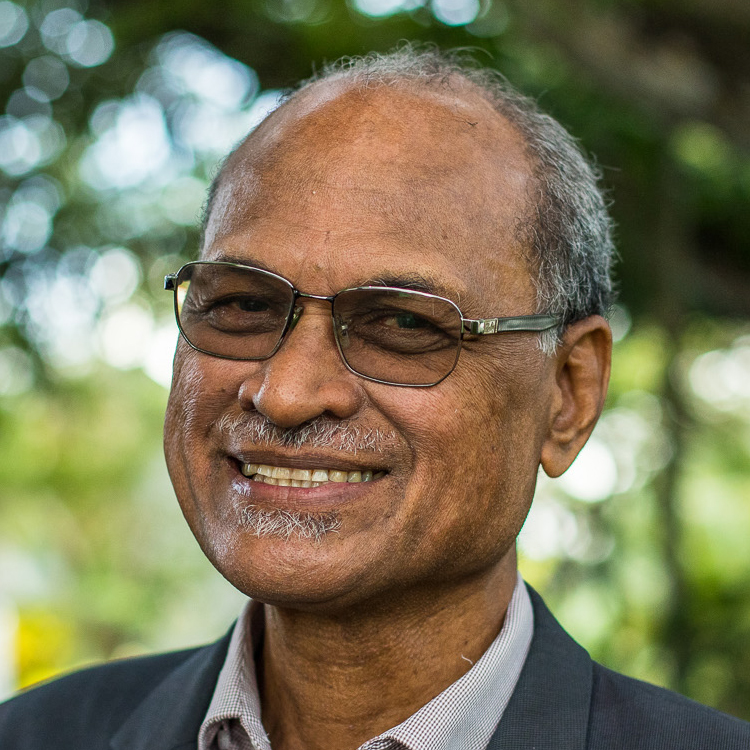
Prof Teatulohi Matainaho
Vice Chancellor, Pacific Adventist University
| 7:30 – 8:50 | Registration 🍵 Welcome tea with pastries |
| 8:50 – 9:00 | Opening prayer – Rev. Malotau Lafolafoga |
| 9:00 – 9:15 | Welcome and introduction – Peseta Su’a Dr. Desmond Mene Lee Hang, Deputy Vice-Chancellor, National University of Samoa Opening address from the Samoa’s Ministry of Education & Culture – Mr Aeau Christopher Hazelman, CEO, Ministry of Education & Culture |
| 9:15 – 9:30 | Welcoming remarks – Prof Tuifuisa’a Patila Malua Amosa, Vice-Chancellor & President, National University of Samoa – Sir Collin Tukuitonga, Associate Dean, University of Auckland – Hideyuki Shiozawa, on behalf of Atsushi Sunami – President of the Sasakawa Peace Foundation |
| 9:30 – 10:45 | Introductions During the roundtable introduction, attendees will have a chance to briefly introduce themselves and share their expectations of the meeting. Chair: – Prof Teatulohi Matainaho, Vice Chancellor, Pacific Adventist University |
| 10:45 – 11:15 | 📸 Group photo Coffee break |
| 11:15 – 12:15 | Session 1: The role of science academies Panel discussion In this panel discussion, representatives from science academies and other scientific institutions across the globe will exchange insights on their experiences, challenges, and recommendations for effectively managing such scientific institutions. Chair: – Sir Peter Gluckman, President, International Science Council Speakers: – Felix Dapare Dakora, Immediate Past President of the African Academy of Sciences (Virtual address) – Anna-Maria Arabia, Chief Executive, Australian Academy of Science – Ourania “Rania” Kosti, Director of the Board on International Scientific Organizations, U.S. National Academies – Professor Karoline Afamasaga-Fuata’i, Professor of Mathematics and Mathematics Education, National University of Samoa 📂 Downloads: – Opening presentation by Sir Peter Gluckman – Presentation by Anna-Maria Arabia |
| 12:15 – 13:15 | Session 2: Challenges of undertaking science in the Pacific and SIDS at large Panel discussion The Pacific Islands face a set of unique challenges in various domains, including in science. This discussion with representatives from different parts of the region will highlight common challenges and ways of tackling them. Chair: – Prof Muagututia Ioana Chan Mow, Professor of Computing and Computing Education, National University of Samoa Speakers: – Prof Chalapan Kaluwin, Acting Dean and Professor of Environmental Science and Head of Environmental Sciences and Geography Discipline of the University of Papua New Guinea – Prof Pal Ahluwalia, Vice Chancellor and President The University of the South Pacific – Dr Teorae Kabure, Director of the Solomon Islands Maritime College 📂 Downloads: – Presentation by Prof Chalapan Kaluwin – Presentation by Dr Teorae Kabure |
| 13:15 – 14:45 | Lunch |
| 14:45 – 15:05 | Scientific presentation: The role of climate action in human-generated mangrove systems Speaker: Salote Nasalo, Research Student, University of the South Pacific The mangrove ecosystem is an essential part of the environment. There have been numerous planting initiatives, yet there is lack of management and assessments to monitor and evaluate the succession of mangrove regeneration processes in a human-generated system. Salote Nasalo will present a comparative study between Lami and Nasese planting sites to share insights and recommendations for various stakeholders for optimal mangrove planting practices. 📂 Downloads: – Presentation |
| 15:05 – 15:25 | Scientific presentation: (Re)Conceptualizing mental health and wellbeing in the Pacific: A Cook Islands case study Speaker: Dr Sam Manuela, Senior Lecturer, University of Auckland Holistic mental health and wellbeing perspectives require innovative psychological research to inform mental health needs and service provision across the Pacific. Dr Manuela will present a study in the Cook Islands that draws on extant psychological tools in ways that parallel holistic Cook Island mental health and wellbeing perspectives. 📂 Downloads: – Presentation |
| 15:25 – 15:45 | Scientific presentation: Soil health: a ridge to reef assessment and potential climate change impacts Speaker: Bernadette Amosa, Senior Researcher Published data on soil health in Samoa is sparse, so this study took a deep dive in assessing and recording biological, chemical and physical soil properties along Vaisigano river. When compared to past studies, the analyzed data allowed to make observations about potential impacts of climate change on soil. 📂 Downloads: – Presentation |
| 15:45 – 16:05 | Coffee break |
| 16:05 – 16:35 | Session 3: ISC and Asia-Pacific Presentation From 2023 – 2028, the Australian Academy of Science will host the International Science Council Regional Focal Point for Asia and the Pacific (ISC RFP-AP), with a primary objective to strengthen the voice of regional scientists in the global scientific discourse, and to support targeted action to address regional needs and priorities. This will be achieved through a range of programs and activities centred around knowledge generation, capacity-building and science communication and translation. Speakers: – Petra Lundgren, Director, ISC Regional Focal Point for Asia and the Pacific – Anna-Maria Arabia, Chief Executive, Australian Academy of Science – Salote Austin, Oceania Manager, ISC Regional Focal Point for Asia and the Pacific 📂 Downloads: – Presentation |
| 16:35 – 16:55 | Conclusions and closing remarks – Sir Collin Tukuitonga, Associate Dean, University of Auckland – Prof Teatulohi Matainaho, Vice Chancellor, Pacific Adventist University |
| 16:55 – 17:00 | Logistical announcement and distribution of per diems – Zhenya Tsoy, Senior Officer, International Science Council – Hideyuki Shiozawa, Senior Program Officer, Sasakawa Peace Foundation |
| 17:00 – 19:00 | Free time Transport: – Boarding time: 17:00 – 17:20. Direction: From Taumeasina to Lava / Tanoa Hotel – Boarding time: 18:30 – 18:45. Direction: From Lava / Tanoa Hotel to Taumeasina |
| 19:00 | Gala dinner Transport: – Boarding time: 22:00 – 22:20. Direction: From Taumeasina to Lava / Tanoa Hotel |
DAY 2: 25 October 2023
Moderators:
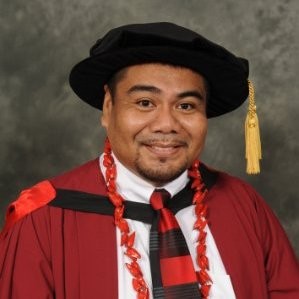
Peseta Su’a Dr. Desmond Mene Lee Hang
Deputy Vice-Chancellor, National University of Samoa
| 9:00 – 9:10 | Recap of Day 1, agenda for Day 2 – Sir Collin Tukuitonga, Associate Dean, University of Auckland – Prof Teatulohi Matainaho, Vice Chancellor, Pacific Adventist University |
| 9:10 – 10:40 | Session 4: Co-designing a possible academy for the Pacific Panel session This session will explore more practical aspects of setting up a science academy for the Pacific: its scope, membership, financing and operations, among other things. Chair: – Prof Tuifuisa’a Patila Malua Amosa, Vice-Chancellor & President, National University of Samoa Speakers: – Jemaima Tiatia-Siau, Pro Vice-Chancellor Pacific, University of Auckland – Roger Ridley, Director, Expert Advice & Practice, New Zealand Royal Society Te Apārangi – Sir Peter Gluckman, President, International Science Council 📂 Downloads: – Presentation by Roger Ridley – Presentation by Sir Peter Gluckman |
| 10:40 – 11:00 | Coffee break |
| 11:00 – 12:00 | Session 5: Risk and mitigation strategies Panel session Acknowledging the complexity of this ambitious initiative, we will use this time to consider possible risks, barriers, and mitigation strategies to address them. Chair: – Lau Dr. Viliamu lese, Associate Director, Victoria Drought Hub, School of Agriculture and Food, University of Melbourne Speakers: – Dr Vomaranda Joy Botleng, Consultant, Janessa’s Research and Consultancy Services (JRCS) – Dr Apisalome Movono, Senior Lecturer in Development Studies, Massey University – Dr Eric Katovai, Acting Pro Vice-Chancellor – Academic and Dean/Associate Professor, Solomon Islands National University (SINU) – Prof Steven Ratuva, Pacific Pro-Vice Chancellor, Director of Macmillan Brown Center for Pacific Studies and Distinguished Professor, University of Canterbury 📂 Downloads: – Presentation by Joy Botleng |
| 12:00 – 13:30 | Lunch |
| 13:30 – 15:00 | Session 6: Small group discussions and feedback Breakout discussion In five smaller groups, we will continue discussing a possible structure of a science academy for the Pacific. Rapporteurs from each breakout group will then provide a short summary of their key take-aways. Chair: – Bibhya Sharma, Head of the School of Information Technology, Engineering, Mathematics & Physics, University of the South Pacific Speakers: – Rapporteurs from each group |
| 15:00 – 15:30 | Coffee break |
| 15:30 – 17:00 | Session 7: Next steps Panel session The last session will attempt to bring together all discussions over the past two days and chart a way forward for establishing a science academy for the Pacific. The focus of the session will be on concrete next steps and actions. Chair: – Peseta Su’a Dr. Desmond Mene Lee Hang, Deputy Vice-Chancellor, National University of Samoa Speakers: – Merita Tuari’I, Senior research fellow at Te Puna Vai Mārama – Prof Teatulohi Matainaho, Vice Chancellor, Pacific Adventist University – Sushil Kumar, Professor of Physics, and Director of Research, University of the South Pacific – Luamanuvao Dame Winnie, Former member of the New Zealand parliament, Assistant VC (Pasifika) at Victoria University of Wellington 📂 Downloads: – Aspirations and guiding principles overview |
| 17:00 – 17:10 | Conclusions and closing remarks – Sir Collin Tukuitonga, Associate Dean, University of Auckland – Sir Peter Gluckman, President, International Science Council – Hideyuki Shiozawa, on behalf of Atsushi Sunami – President of the Sasakawa Peace Foundation |
| 17:10 – 17:15 | Logistical announcement – Zhenya Tsoy, International Science Council |
See the list of registered participants.
Speakers and Guests
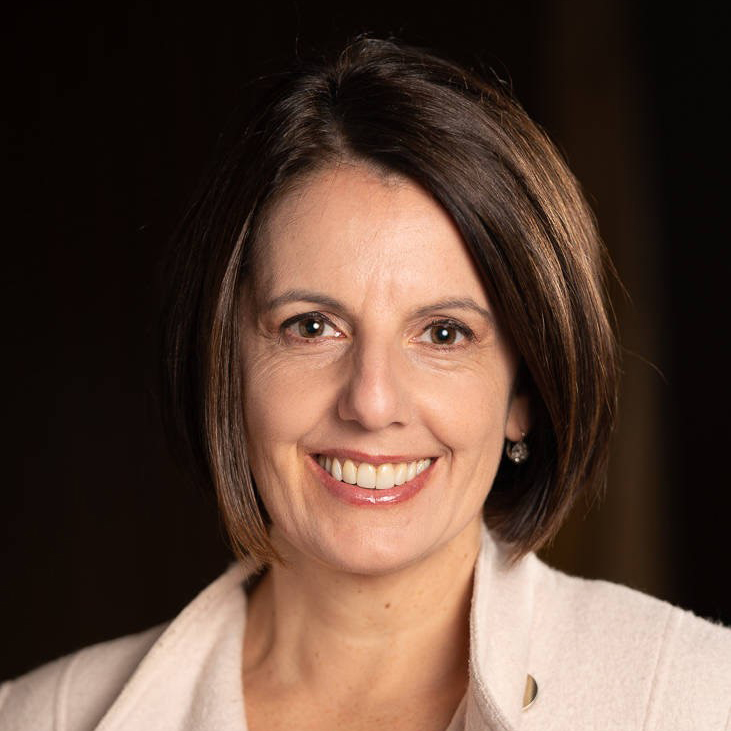
Anna-Maria Arabia
Anna-Maria is the Chief Executive of the Australian Academy of Science. In this role Anna-Maria has led significant reform in global science engagement, in science policy matters, and in improving diversity and inclusion in science. Starting her career as a neuroscientist, Anna-Maria undertook medical research in Australia and abroad, before applying her skills to policy development both in the Australian public service and in politics where she provided policy advice across social and economic portfolios. She has held several senior executive positions including CEO of Science and Technology Australia and Deputy Director at Questacon – the National Science and Technology Centre.
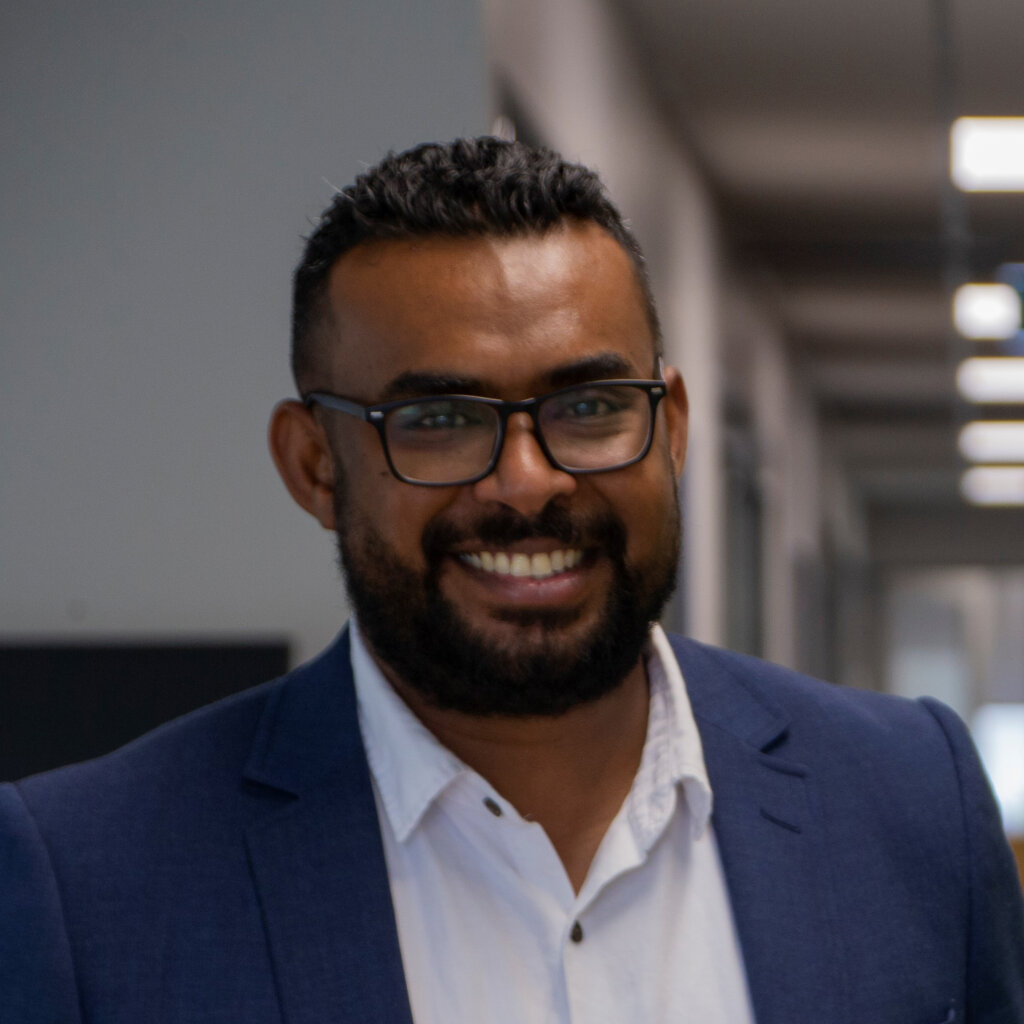
Api Movono
Apisalome Movono comes from a long line of navigators, fishermen and warriors of the sea which is where his passion for the ocean comes from. He is a conservationist, academic, activist and regenerative development advocate from Buca Village in Fiji. He is a Senior Lecturer in Development Studies at Massey University and currently leads a number of research projects focusing on regenerative development, community well-being and tourism resilience in the Pacific.

Bernie Amosa
Graduated from the National University of Samoa with a Master’s degree in Environmental Science with a thesis on soil health and potential impact of climate change. She is currently employed at the Ministry of Natural Resources and Environment of Samoa.
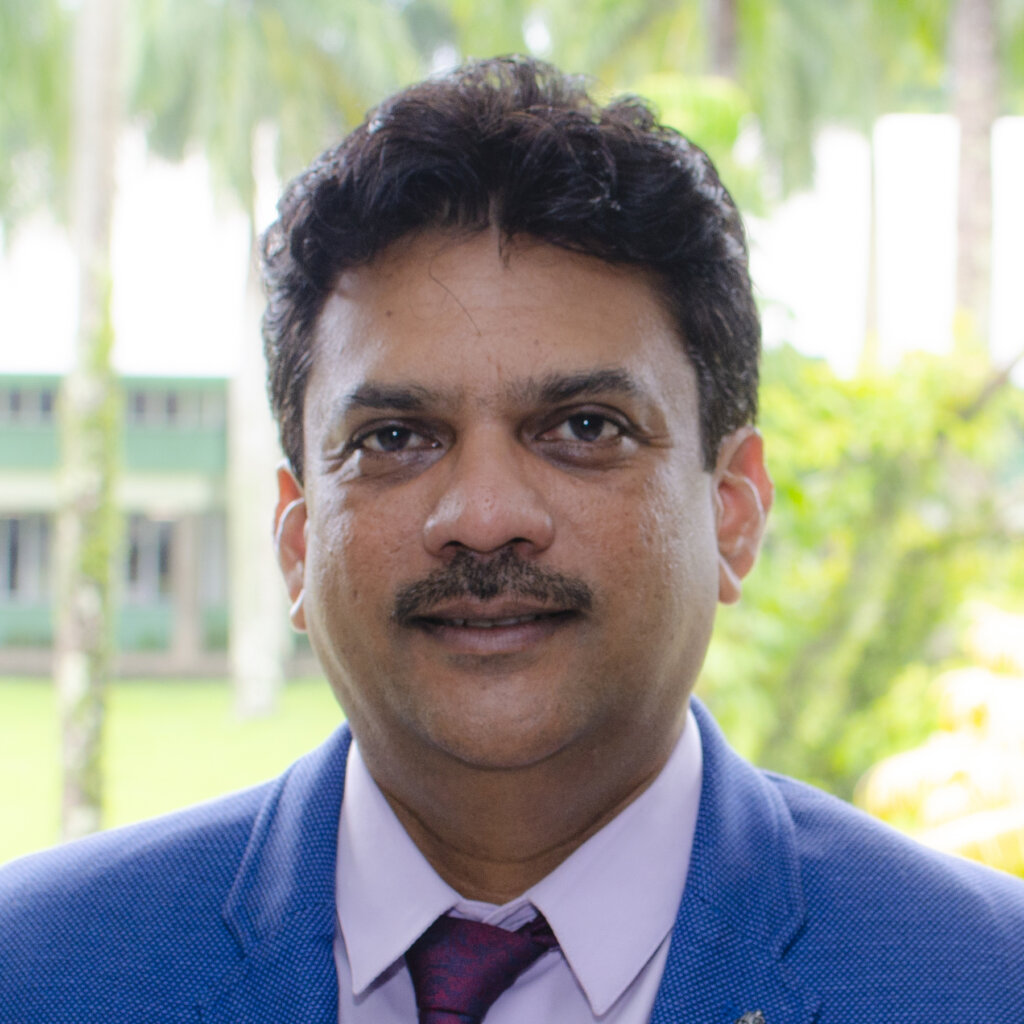
Bibhya Sharma
Bibhya Sharma is a Professor of Mathematics at the University of The South Pacific. He is a member of a number of professional societies and has published more than 150 articles and book chapters in the fields of Pacific Science Education and TLPs of higher education especially dealing with ICT. He champions adaptive works, innovations and targeted interventions for higher education.
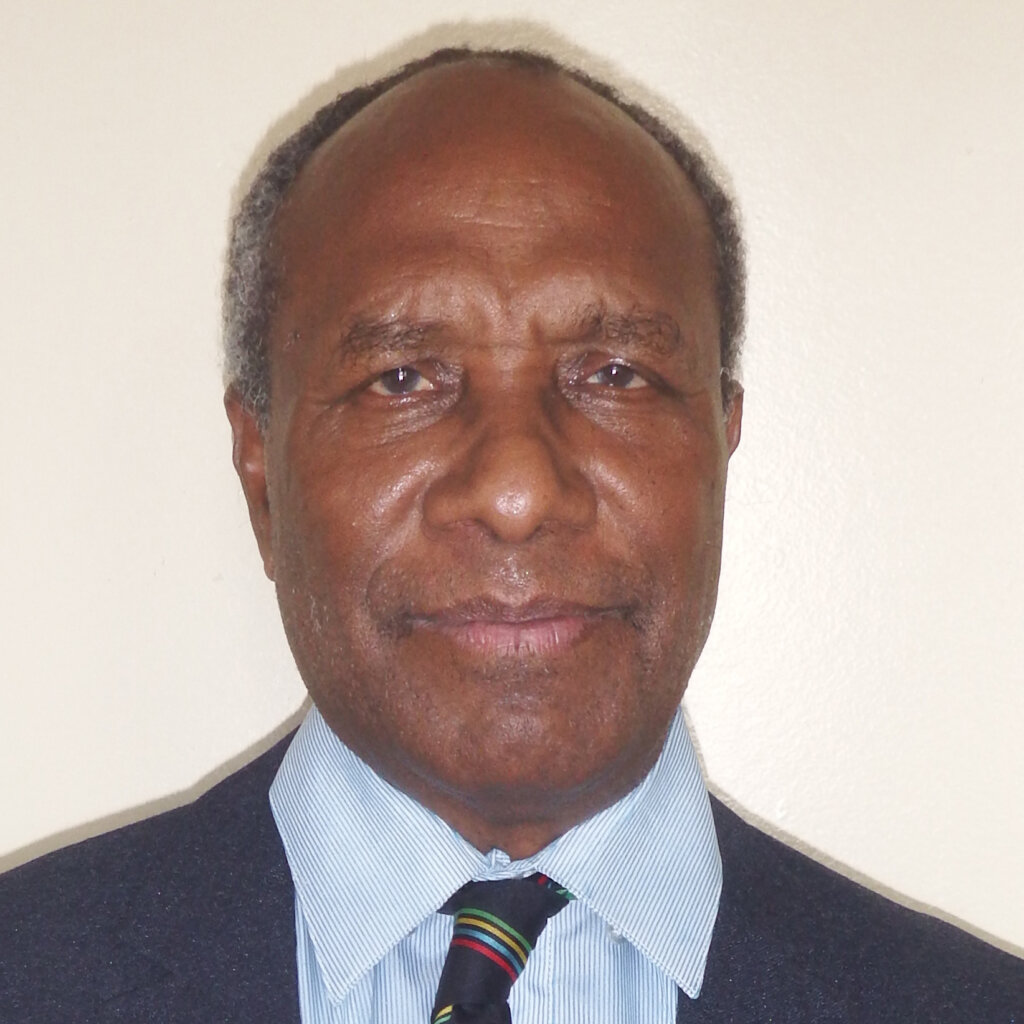
Chalapan Kaluwin
Professor Chalapan Kaluwin is the Team leader for the staff of Environmental Science and Director for climate Change and Sustainable Development at the University of Papua New Guinea. His main research interest is in oceans, atmosphere and mining on land and oceans.

Colin Tukuitonga
Sir Colin Tukuitonga is a medical graduate and Public Health Physician with extensive experience in health policy, research, management and leadership in New Zealand and internationally. Currently he is Associate Dean at the Faculty of Medical and Health Sciences, University of Auckland

Peseta Su’a Desmond Mene Lee Hang
Peseta Su’a Dr. Desmond Mene Lee Hang is Deputy Vice-Chancellor at the National University of Samoa. He is in charge of the university’s academic and research programmes to ensure that they offer quality teaching and provide quality research skills to students.
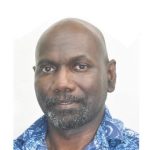
Eric Katovai
Dr. Eric Katovai is an accomplished environmental biologist and academic with 17 years of experience. He is currently the Acting Pro Vice-Chancellor – Academic and Dean/Associate Professor at the Solomon Islands National University (SINU). Specializing in ecosystem functioning, plant ecology, and conservation, he has held key roles at Pacific Adventist University and the University of the South Pacific prior to joining SINU. Dr. Katovai’s research focuses on topics like biodiversity, vegetation dynamics, and land-use management, and is currently involved in landscape rehabilitation projects in the Solomon Islands. Dr. Katovai holds a Ph.D. in Tropical Ecology from James Cook University, among other degrees.
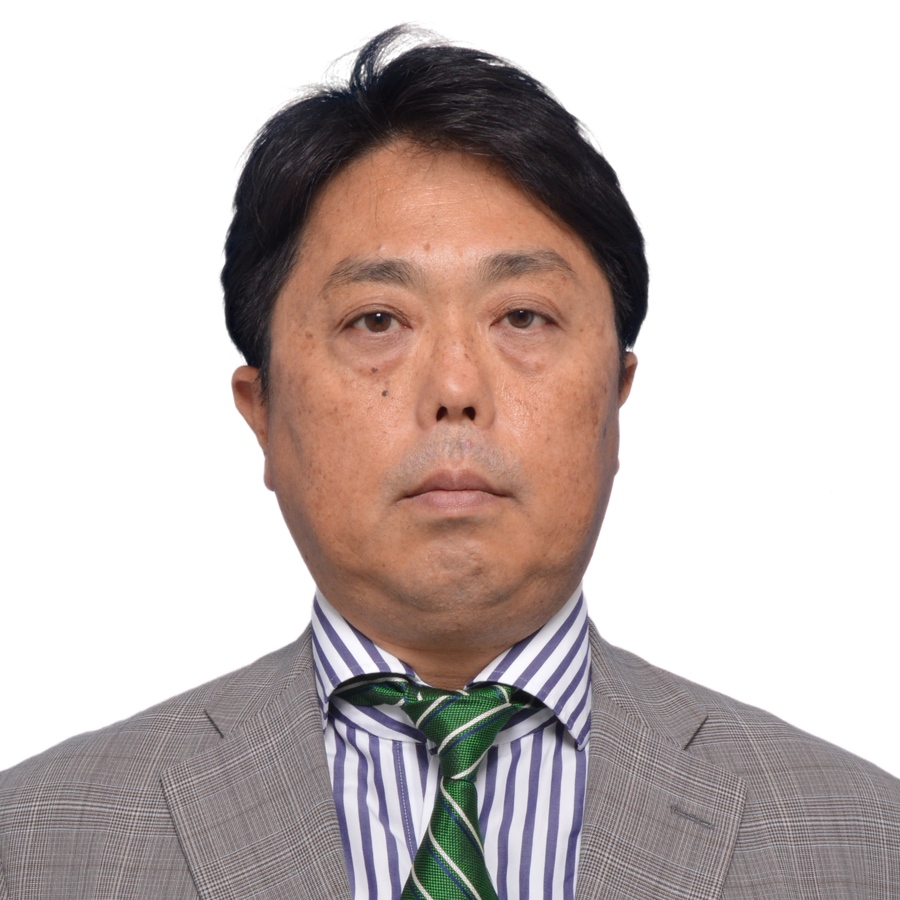
Hideyuki Shiozawa
MSc in Earth Science. Working for Pacific Islands relations since 2003 both in Government and non-government including education.
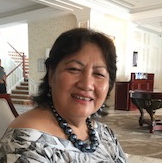
Ioana Chan Mow
Dr Ioana Chan Mow is Professor of Computing and Computer Education at the National University of Samoa (NUS). She is the country Focal Point for Samoa for the Commonwealth of Learning. Her research interests are in TEL, e-government, IT security and ICT for development. Dr Chan Mow has led various projects for NUS including the ESD Edulink project, PACENET+, Pacific attitudes Survey, SKSI, Skills for Work, Online proctoring (OPS). She currently teaches postgraduate courses in the areas of systems management, ICT policy and regulation, ICT in education, and risk management.
James Cerven
James Cerven is a Regional Technology Officer (RTO) with the U.S. Department of State. Based out of Sydney, Australia, James is responsible for monitoring and supporting U.S. government engagement on critical and emerging technologies in Southeast Asia and Oceania. Prior to his assignment in Sydney, James served as a financial economist with the Office of Investment Affairs in the Bureau of Economic Affairs, where he focuses on the Department’s participation on the Committee on Foreign Investment in the United States (CFIUS). He is a career Foreign Service Officer who has served in Jakarta, Indonesia, Islamabad, Pakistan, and Guangzhou, China. Before joining the Foreign Service, he was a practicing attorney and policy advisor with the Department of Justice National Security Division, the National Counterterrorism Center (NCTC), and the U.S. Court of International Trade. He holds a JD from the University of Michigan and a B.A. from the University of Idaho.
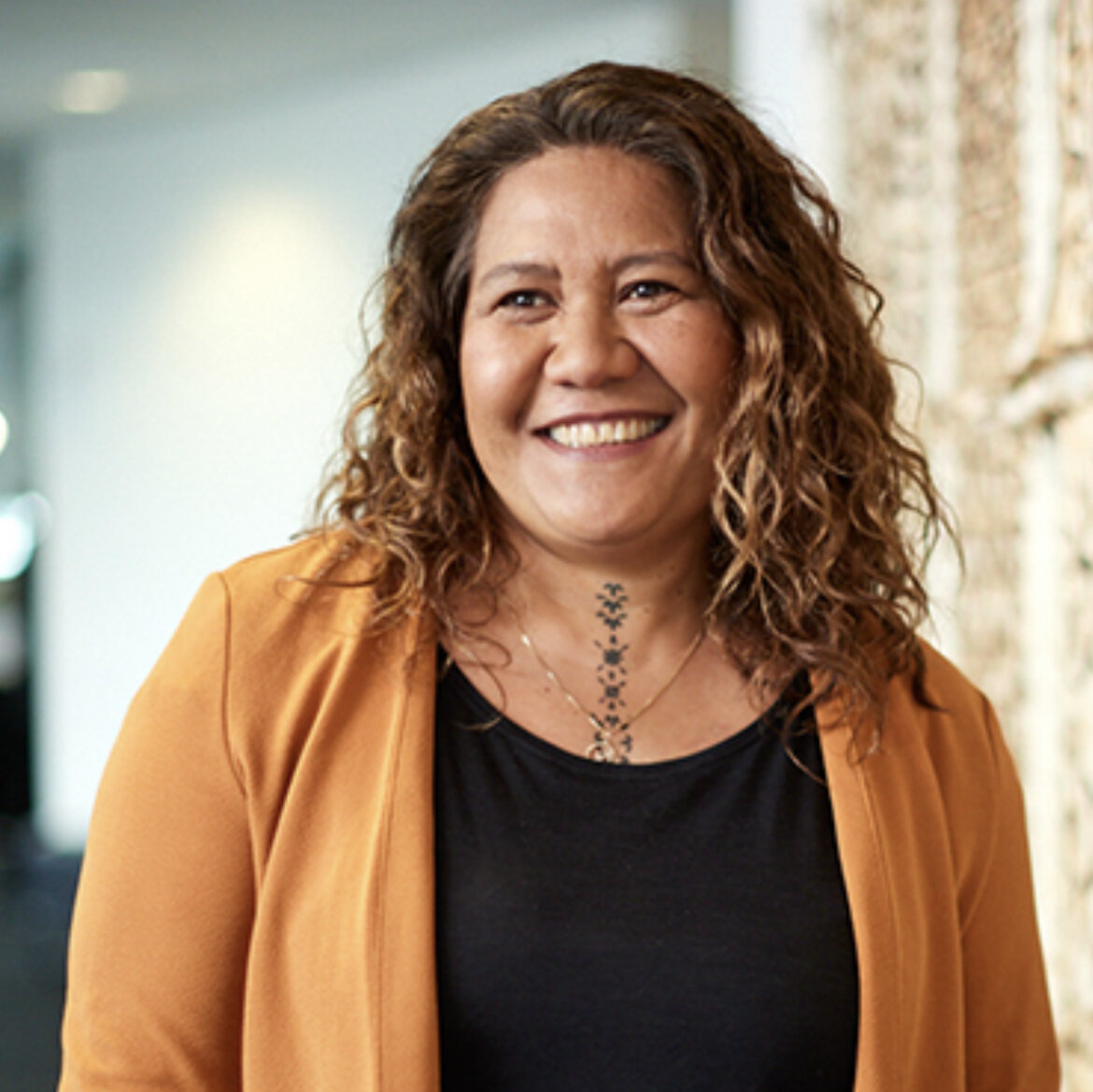
Jemaima Tiatia-Siau
Jemaima Tiatia-Siau is Pro Vice-Chancellor Pacific and an Associate Professor in Pacific Studies at Waipapa Taumata Rau, University of Auckland. Jemaima’s research interests include: mental health and wellbeing, health inequities, Pacific Studies, youth development, suicide prevention and postvention, climate change and mental wellbeing.
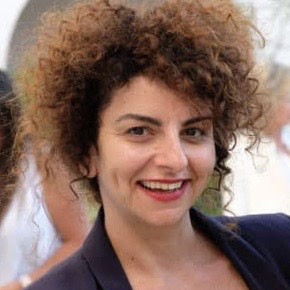
Ourania (Rania) Kosti
Dr. Ourania “Rania” Kosti is the executive director of InterAcademy Partnership (IAP), based at the Secretariat office hosted by the U.S. National Academy of Sciences in Washington, DC, and the director of the Board on International Scientific Organizations of the U.S. National Academies. Dr. Kosti’s expertise is in radiation health effects and emergency preparedness and response. She was a postdoctoral fellow at the Lombardi Comprehensive Cancer Center at Georgetown University Hospital in Washington, DC, where she conducted research on biomarker development for early cancer detection. Dr. Kosti also trained at the National Cancer Institute (2005–2007). She received a B.S. in biochemistry from the University of Surrey, United Kingdom; an M.S. in molecular medicine from the University College London; and a Ph.D. in molecular endocrinology from St. Bartholomew’s Hospital in London, United Kingdom.
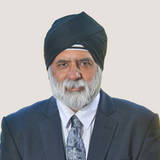
Pal Ahluwalia
Professor Pal Ahluwalia is the Vice Chancellor and President of the University of the South Pacific, the Co-Chair of the Pacific Islands Universities Research Network (PIRUN), a Fellow of the Academy of Social Sciences in Australia (FASSA) and fellow of the Australian Institute of International Affairs (AIIA). Professor Ahluwalia is committed to the regional priorities of building a dynamic and empowering research culture that finds solutions, creates new knowledge across a broad array of disciplines, and helps to bring positive change leading to innovative, cohesive, resilient and sustainable communities in the Pacific region.
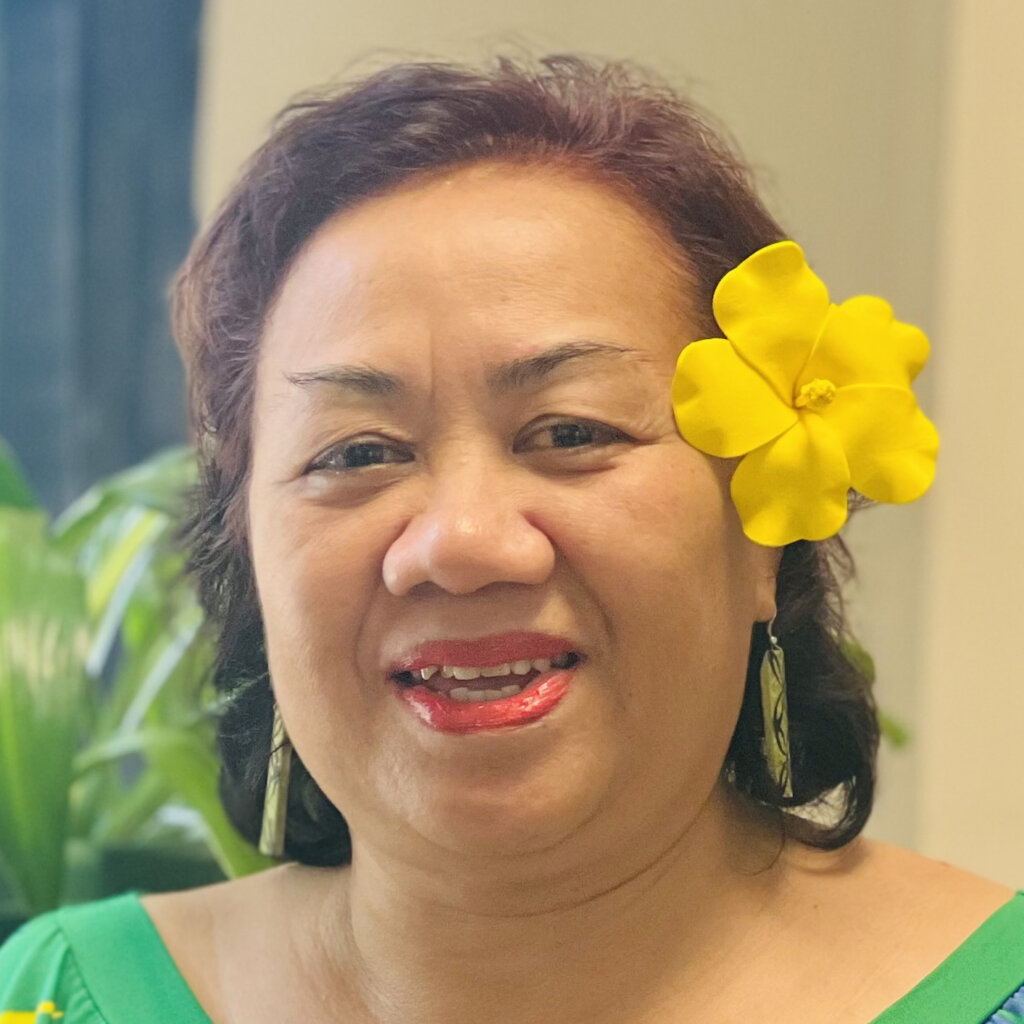
Patila Amosa
Patila Amosa, PhD was appointed as the new Vice Chancellor and President of the National University of Samoa in March this year. Prior to that, she was the Dean of the Faculty of Science for the last 7 years where she played a key role in strategic developments of the faculty including the design of science programmes and curricular from pre-degree to postgraduate levels and strengthening the faculty research portfolio. Her research interests have focused on water quality assessment and climate change, particularly on ocean acidification.
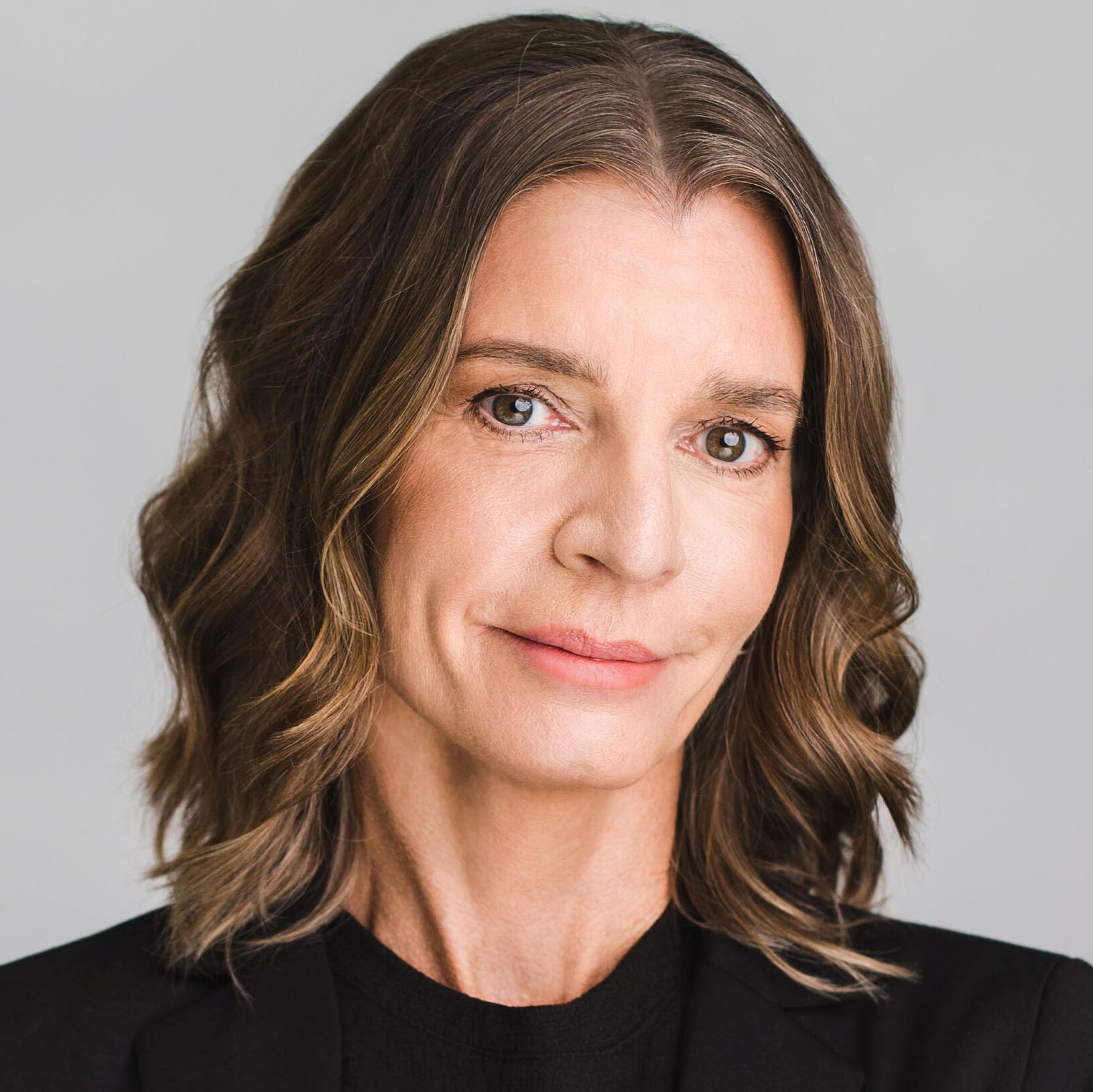
Petra Lundgren
Petra’s career has focused on advancing science and its impact on global decision-making. As the Director of the International Science Council Regional Focal Point for Asia and the Pacific, housed within the Australian Academy of Science, she is at the forefront of advocating for the crucial role that science plays in shaping our world.
Petra has a wealth of expertise and a passion for promoting science as a public good with a mission is to bridge the gap between research and policy, ensuring that scientific insights resonate where important decisions are being made. She holds a Ph.D. in Molecular Ecology and is an Adjunct Associate Professor in Sustainability at the Sunshine Coast University.
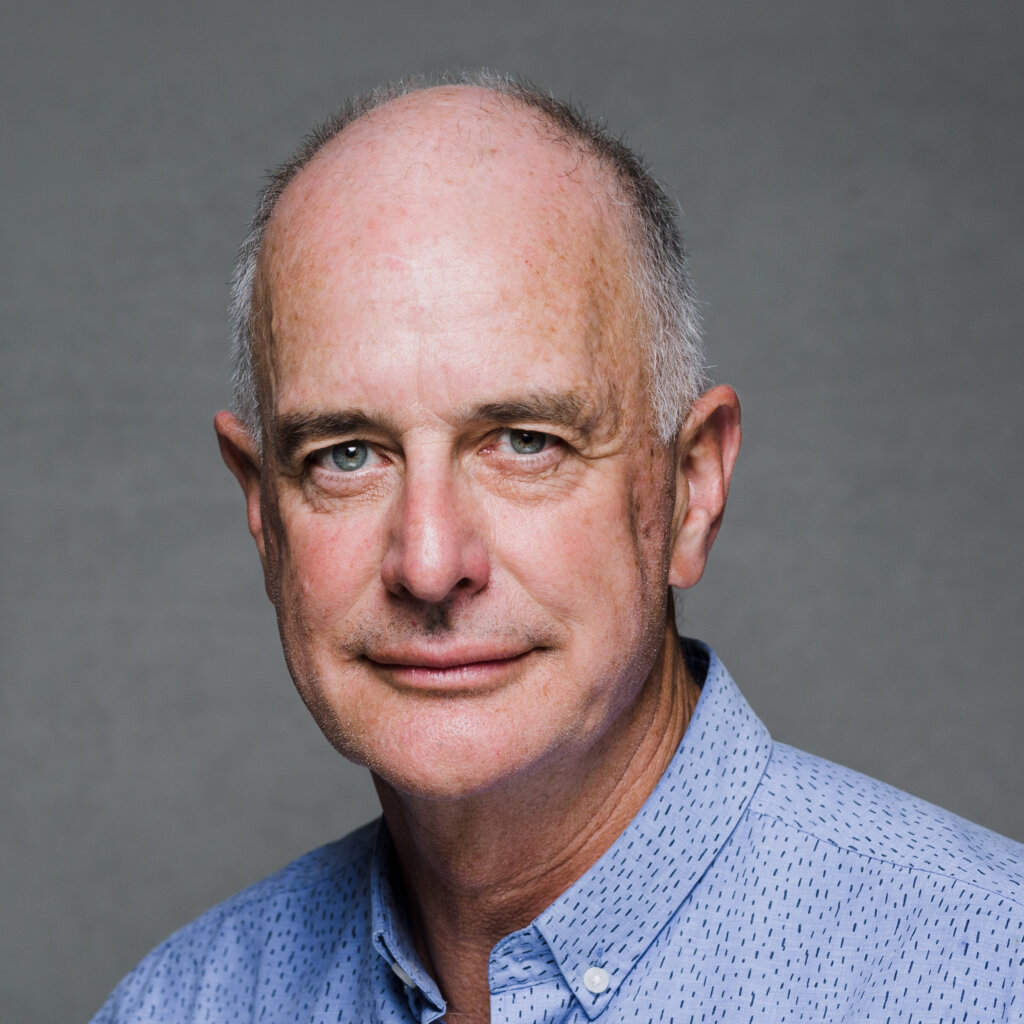
Roger Ridley
Dr Roger Ridley is currently Director of Expert Advice and Publishing at Royal Society Te Apārangi in New Zealand. Roger previously held senior leadership roles in the New Zealand public service including the Treasury, and the Ministry of Research Science and Technology. Roger has deep knowledge of New Zealand’s science system and the role of the Society and its academy within it, and led the legislative changes that brought the Humanities into the academy alongside the sciences. Roger’s earlier career was as an atmospheric scientist including gaining a Ph.D. in meteorological modelling and weather prediction from Monash University in Australia.
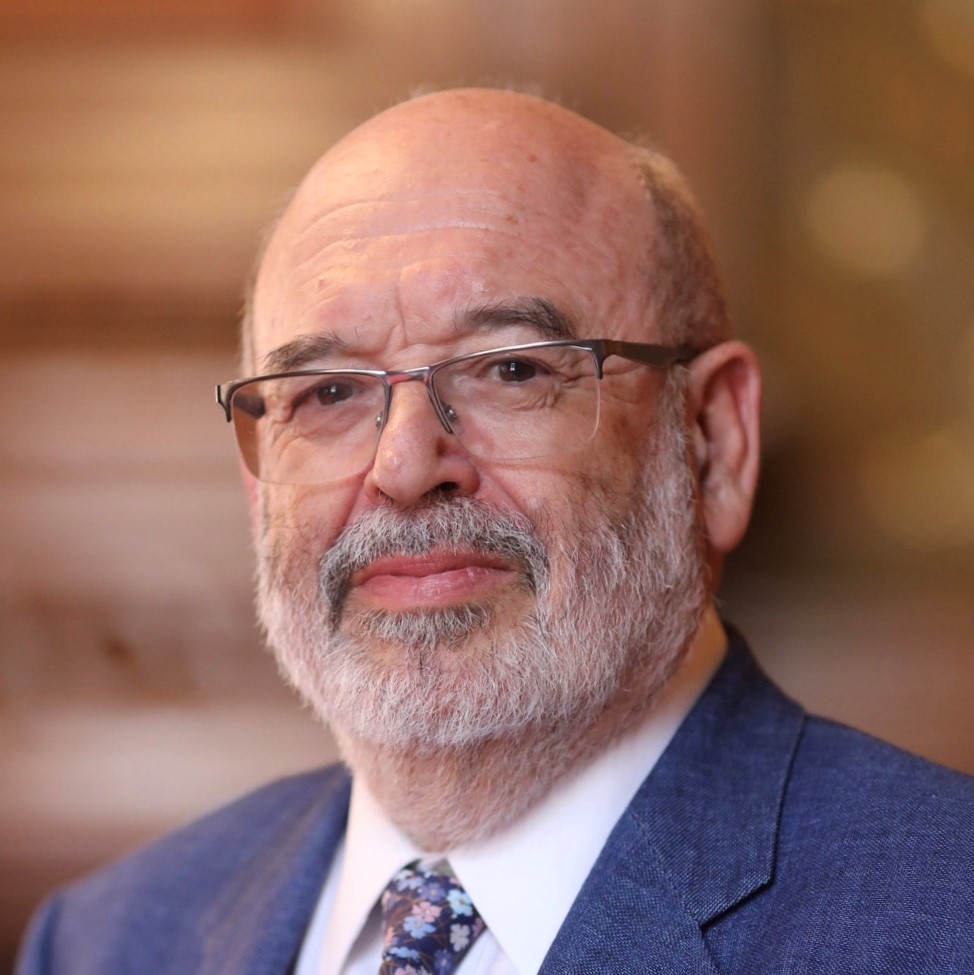
Peter Gluckman
Sir Peter Gluckman is the President of the International Council, ISC Fellow, and Head of Koi Tū: The Centre for Informed Futures, University of Auckland, New Zealand. He is an internationally recognized biomedical scientist, who has written and spoken extensively on science-policy, risk assessment, science-diplomacy, and science-society interactions. From 2009-2018 he was first Chief Science Advisor to the Prime Ministers of New Zealand and from 2012-2018 Science Envoy for the New Zealand Ministry of Foreign Affairs and Trade. He was foundation chair of the International Network of Government Science Advice (INGSA) from 2014-2021.
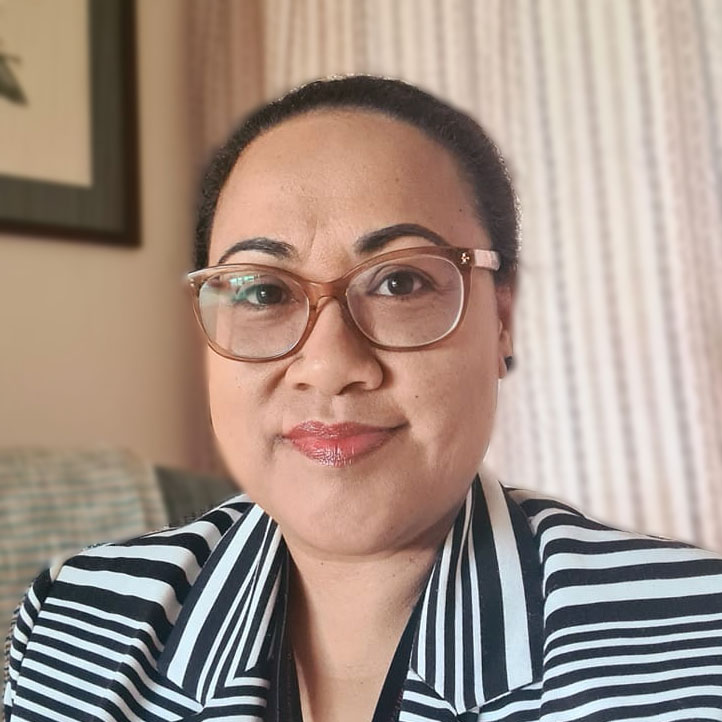
Salote Austin
Salote has an extensive background in educational policy, programme management and social research. She was appointed recently as Oceania Programme Manager at the Royal Society Te Apārangi to assist the International Science Council Regional Focal Point for Asia and the Pacific (ISC RFP-AP) with the planning and implementation of activities and programmes specifically focusing on the Pacific Island Nations’ priorities. She is based in Wellington, New Zealand.
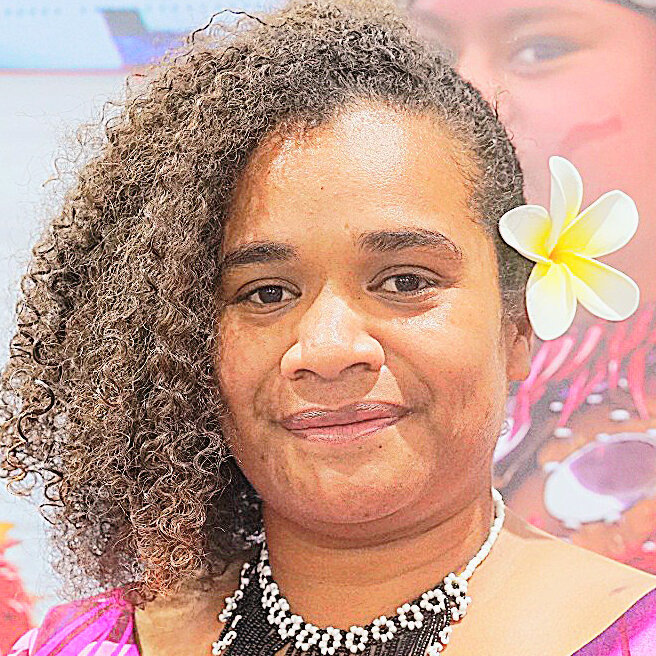
Salote Nasalo
Salote Sevuti Nasalo is an i-Taukei young scientist from the Pacific Centre for Environment and Sustainable Development (PaCE-SD) at the University of the South Pacific (USP-Laucala Campus) in the completion phase of her master’s degree. She is an ACIAR PASS-CR scholar and her research focusses on the role of climate action in Mangrove Management and Restoration.
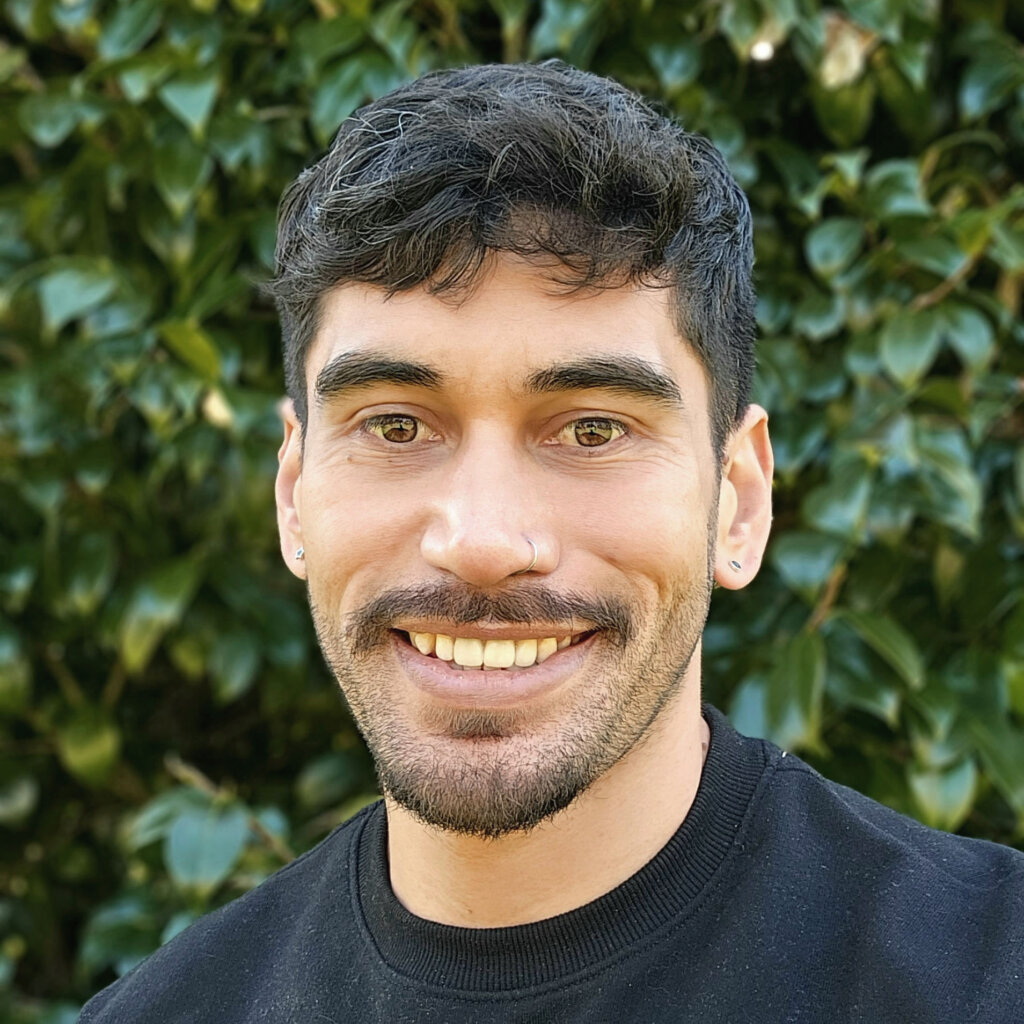
Sam Manuela
Dr Sam Manuela is a Senior Lecturer in the School of Psychology at The University of Auckland. His research focuses on the relationships of Pacific ethnic identities and psychological wellbeing in the New Zealand context, mental health in the Cook Islands, and the integration of Pacific cultural knowledges and psychological theories and practice.
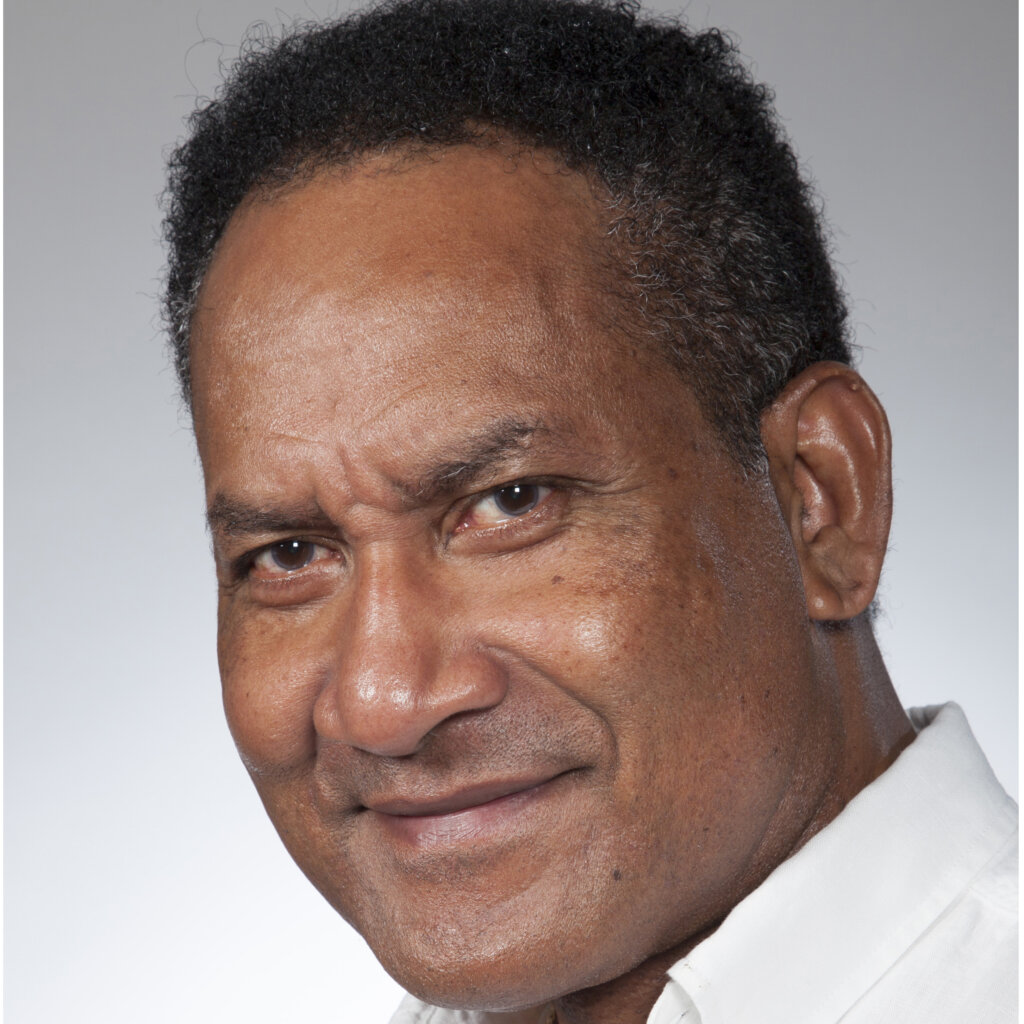
Steven Ratuva
Professor Steven Ratuva is the Pacific Pro-Vice Chancellor, Director of Macmillan Brown Center for Pacific Studies and Distinguished Professor at University of Canterbury. He is also the Chair of the International Political Science Association Research Committee on Climate Security and Planetary Politics. He is an Award-winning interdisciplinary Fullbright scholar, leads a number of regional and international projects and is also an artist and musician born in Fiji.

Teorae Kabure
Dr Kabure, who hails from the Republic of Kiribati is better known as the first I-Kiribati and Tabiteuea South shipmaster to hold a Doctorate with over 30 years of experience in the maritime and shipping industry.
Before he joined the Solomon Islands National University (SINU), he spent more than 13 years teaching at the Maritime College in Madang, Papua New Guinea. He is well-versed in the maritime industry and brings with him a wealth of expertise from working on board foreign going cargo ships as well as other shore-based careers that include Maritime Education and Training (MET). He will be assisting the Maritime College in reaching new heights with his excellent level of experience in seafaring practice and in other related academic MET programs from both TVET and Higher Education perspectives.
Career highlights include his sea time between 1987-1999, he attained his goals of being a seafarer, held positions as junior and senior nautical officer, before he got promoted to become Captain or Master on board cargo ships. He obtained most of his practical sea time on board German and other foreign-going cargo ships trading worldwide. As a result, in 1999, he achieved his Class 1 or Master Foreign Going Certificate of Competency at the New Zealand Maritime School in Auckland. From 2000 to 2005 he worked as a trainer / lecturer at the Marine Training Centre then as the Principal of the Fisheries Training Centre also for the Kiribati government.
In 2006 Dr Kabure worked as a Senior Maritime Lecturer at the Maritime College in PNG. After 8 years of service there, he became Head of the Nautical Department of the College. Kabure did not stop learning after he reached his highest technical level of maritime qualification but decided to do the 1st part of his Post Graduate studies in 2008. He progressed on to obtain his MBA from the Australia Maritime College (University of Tasmania) majoring in Maritime Logistics & Management. He was then awarded his Doctorate majoring in maritime studies through a full-time online course work program from the Atlantic International University (AIU) in Honolulu Hawaii in 2013.

Prof Teatulohi Matainaho
Currently Vice Chancellor of the Pacific Adventist University, Papua New Guinea. Previously served as chairman of the PNG Science & Technology Council, and chief science advisor to the Government of PNG, and formerly as professor of basic medical sciences and pharmacology, School of Medicine and Health Sciences, University of Papua New Guinea.
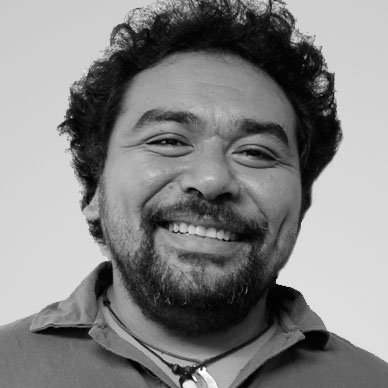
Lau Dr. Viliamu Iese
Associate director of the victoria drought resilience adoption and innovation hub, and a senior research fellow for climate and drought studies, at the school of agriculture, food and ecosystem science, university of Melbourne. He is also an adjunct senior fellow with the pacific centre for environment and sustainable development, USP. Vili is the rep for all academia to the pacific resilience partnership, and a pacific regional representative to the under Asia Pacific science and technology advisory group. He leads research groups and published widely in the field of resilient agriculture, food security and health; climate change and loss and damage; disaster resilience and livelihood of pacific communities. Vili is a Samoan, and a citizen of Tuvalu.
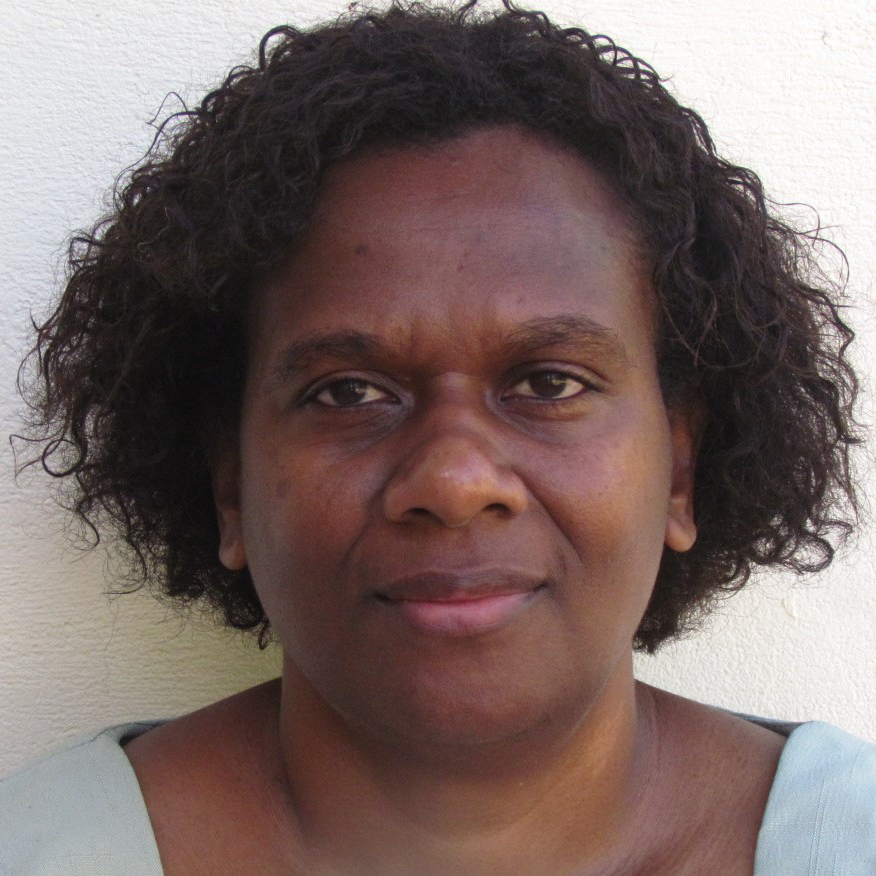
Vomaranda Joy Botleng
Dr Vomaranda Joy Botleng is a PhD graduate in the field of science, specializing in digital fabrication. Her research is at the forefront of integrating cutting-edge technology into educational environments. Dr Botleng’s research has been featured in prominent international conferences focused on science, technology and engineering, notably including the prestigious ‘International Conference for Engineering Design (ICED)’.
In her previous capacity as the Officer-In-Charge of the National University of Vanuatu School of Education, Dr Botleng played a pivotal role in shaping the teacher education landscape in Vanuatu.
She is now a consultant for ‘Janessa’s Research and Consultancy Services (JRCS)’ in Vanuatu.
Other participants
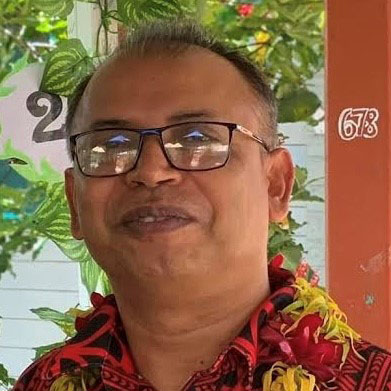
Abdul Kader
Dr Abdul Kader is an Associate Professor in Soil Science having a PhD in Applied Biological Science from Ghent University, Belgium and currently works at the Agriculture and Food Technology Discipline (AFT), University of South Pacific as the Discipline Coordinator of the AFT programme. He has more than 20 years of teaching and research experience mainly in the field of soil fertility, soil organic matter, and nitrogen availability to plants in different universities of Asia, Europe, and the Pacific. Currently, he is conducting research on different aspects of soil management in the South Pacific Island countries, composting and nutrient cycling in taro based cropping systems.
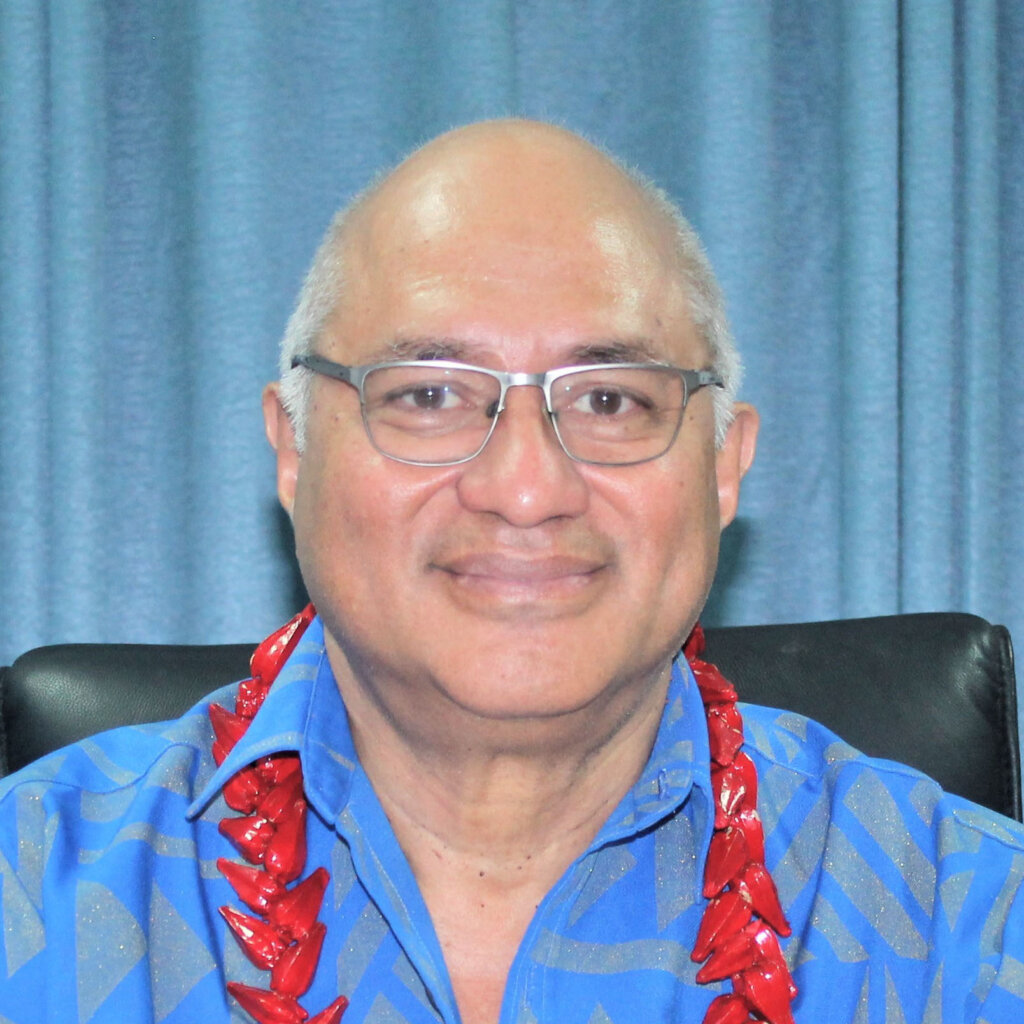
Aiono Dr. Alec Ekeroma
Dr Aiono Alec Ekeroma is a specialist of obstetrics & gynaecology, researcher in Pacific health, teacher of undergraduate and postgraduate medical students and worked in
governance of NGOs, business and government committees.
His leadership and interests encompass business and investments in properties.
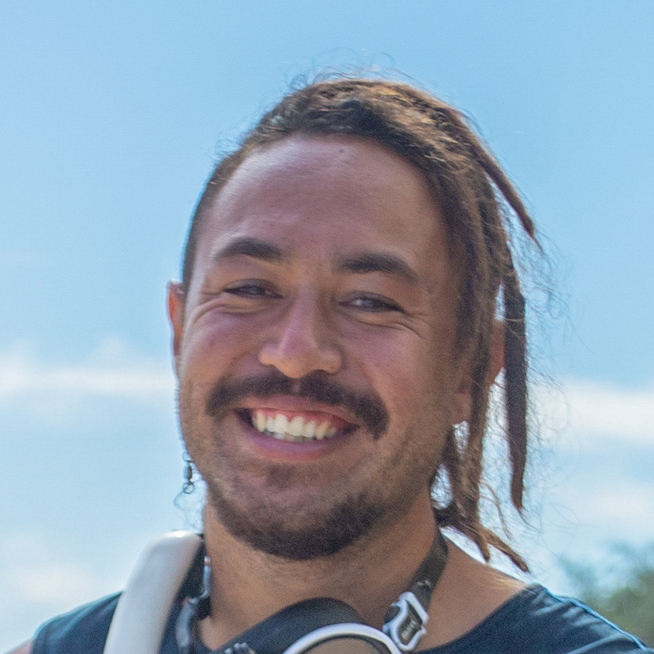
Antony Vavia
Antony is a lecturer of Cook Islands and Fijian descent at the Auckland University of Technology (AUT). His research interests centers on Pacific Island coastal reef fisheries where his PhD explored a subsistence-based fishery by employing scientific and traditional knowledge lenses in a case study on the small island of Mitiaro, Cook Islands. Antony has recently submitted his thesis and is standing-by for the review process.
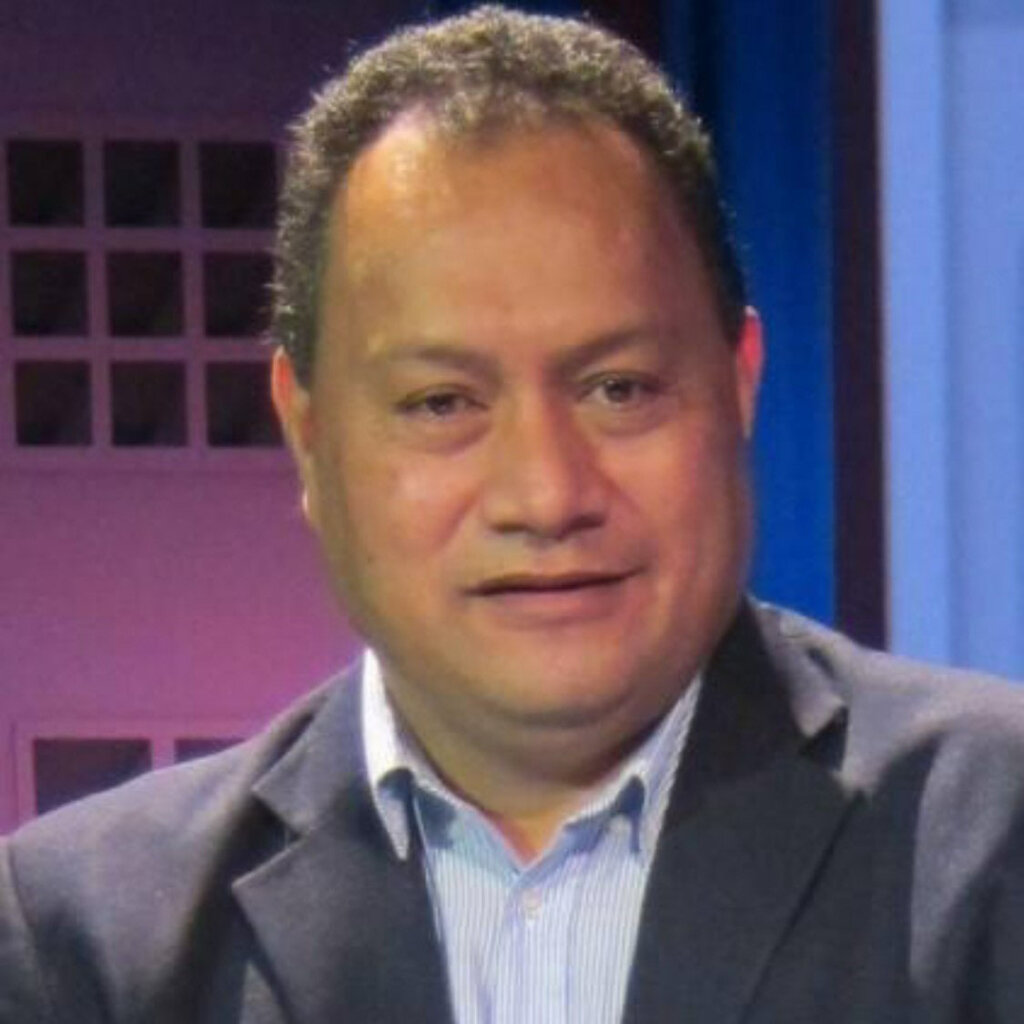
Asiata Satupaitea Viali
Graduated from Auckland Medical School; post-graduate in Public Health (MPH) in the University of New South Wales Sydney Australia; FRACP, FCSANZ, FESC, FACC Internal Medicine & Cardiology; research partnerships with Yale , Browns, Pittsburg Universities USA & Otago University & Auckland University; Main area of Research – Cardiovascular Disease, Rheumatic Fever and Rheumatic Heart Diseases; Professor of Medicine and Dean for Samoa and Asia Pacific Region of the Oceania University of Medicine, Samoa; Professor of Medicine of the National University of Samoa School of Medicine; Professor Adjunct of Epidemiology of the Yale University School of Public Health and School of Medicine, USA; Cardiologist & Consultant Physician TTM Hospital and Private Medical Specialist Clinic; Senior Pastor of Cornerstone Church Samoa.
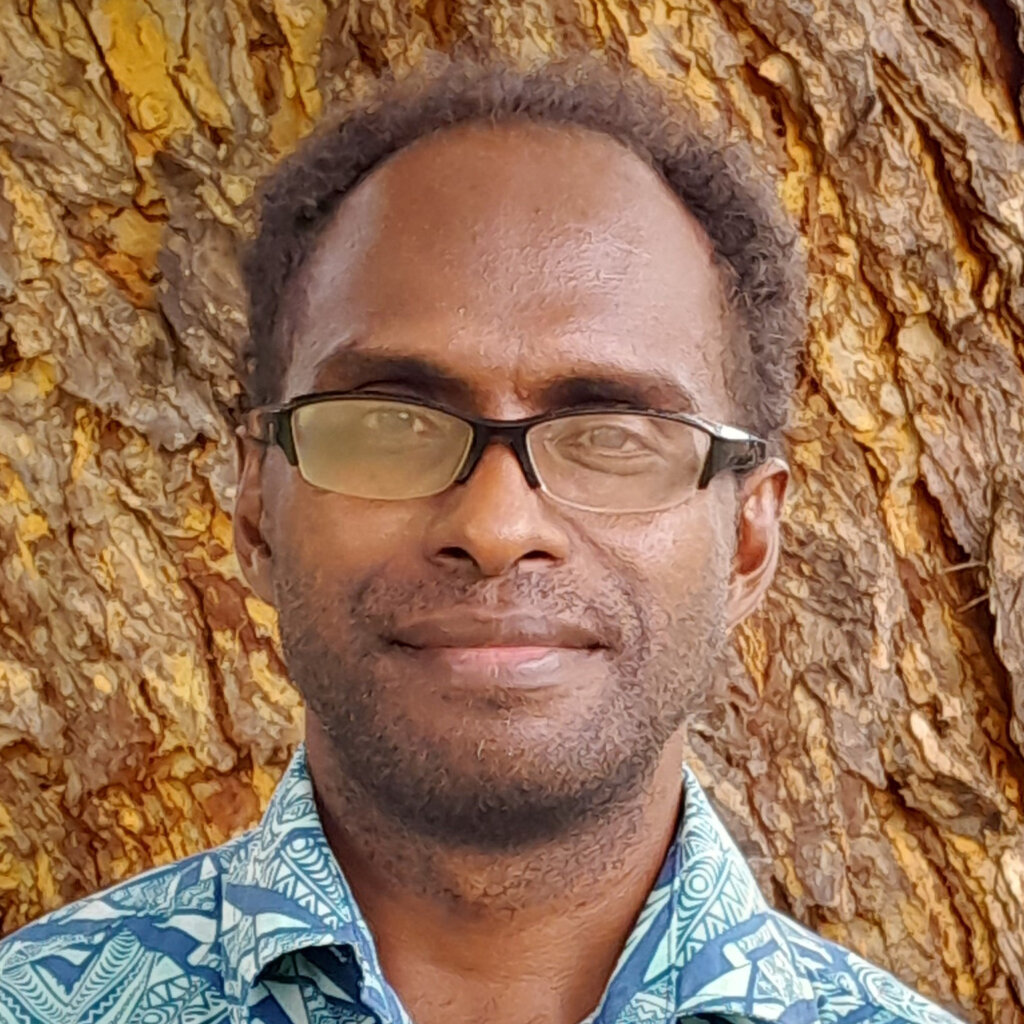
Clyde Puilingi
Dr Clyde Puilingi is Assistant Dean/Senior Lecturer in the School of Science and Technology, at Pacific Adventist University. He has a PhD in Chemistry from Tohoku University, Japan. His areas of research focus on organic chemistry, natural products chemistry and natural biotoxin research, analytical chemistry and R&D and innovation-related research and projects.
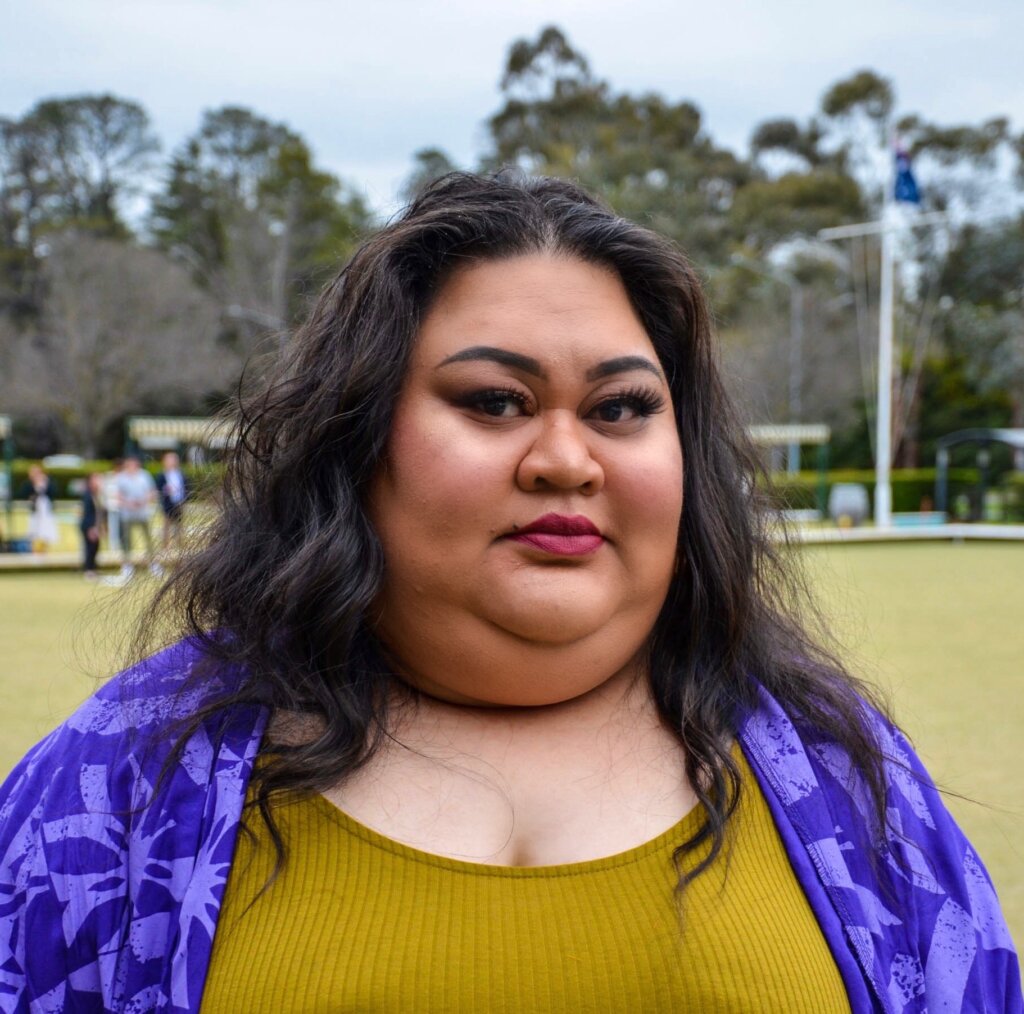
Crystal Ake
Crystal Ake’s work with MORDI enables her to continue CCDRR to 122 rural target communities that the organization engages. The initiatives of the organization specializes in agricultural extension services, humanitarian assistance as well as other cross cutting themes. She has previously worked in Climate Finance for the government and then went on to become a postgraduate student at the Australian National University. She has worked alongside various academic institutions, humanitarian agencies, and international development partners. As a Tongan woman, working in rural development she is fortunate to continue utilizing her CCDRR skills at a community level.
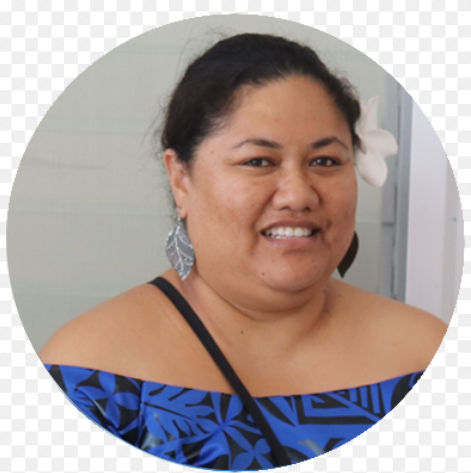
Edna Temese
Dr Edna Temese graduated from Ibaraki University, Japan with a Masters and PhD, and is currently a senior lecturer at the Information Technology Department, Faculty of Science, NUS.
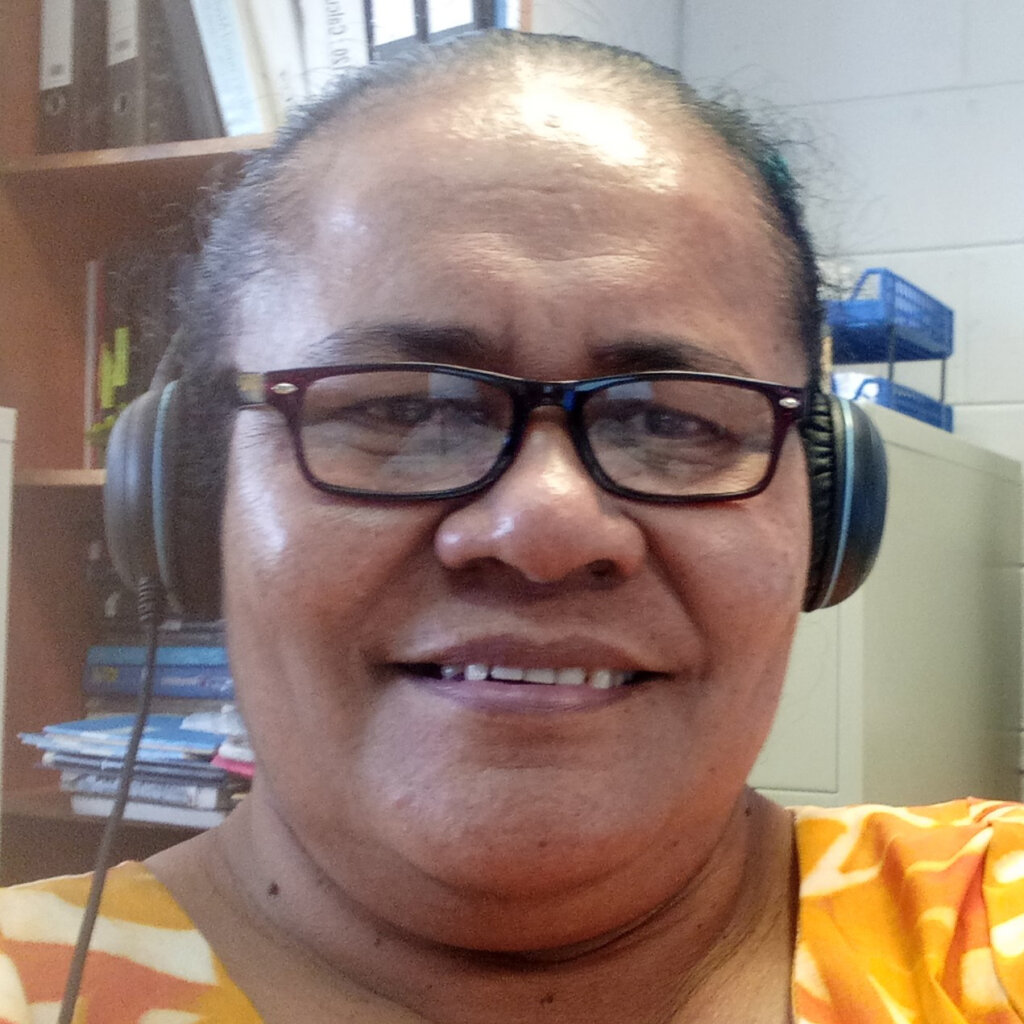
Faafetai Sepulona
Faafetai Sepulona is currently employed at the University of Samoa as a lecturer of Mathematics. She mostly deals with upgrade primary student teachers for about ten years, in addition to other foundation, certificate & diploma level Mathematics courses. June this year she was officially appointed as the Head of the Mathematics & Statistics Department in the Faculty of Science and is looking forward to embrace any challenges & opportunities in her career with enthusiasm.
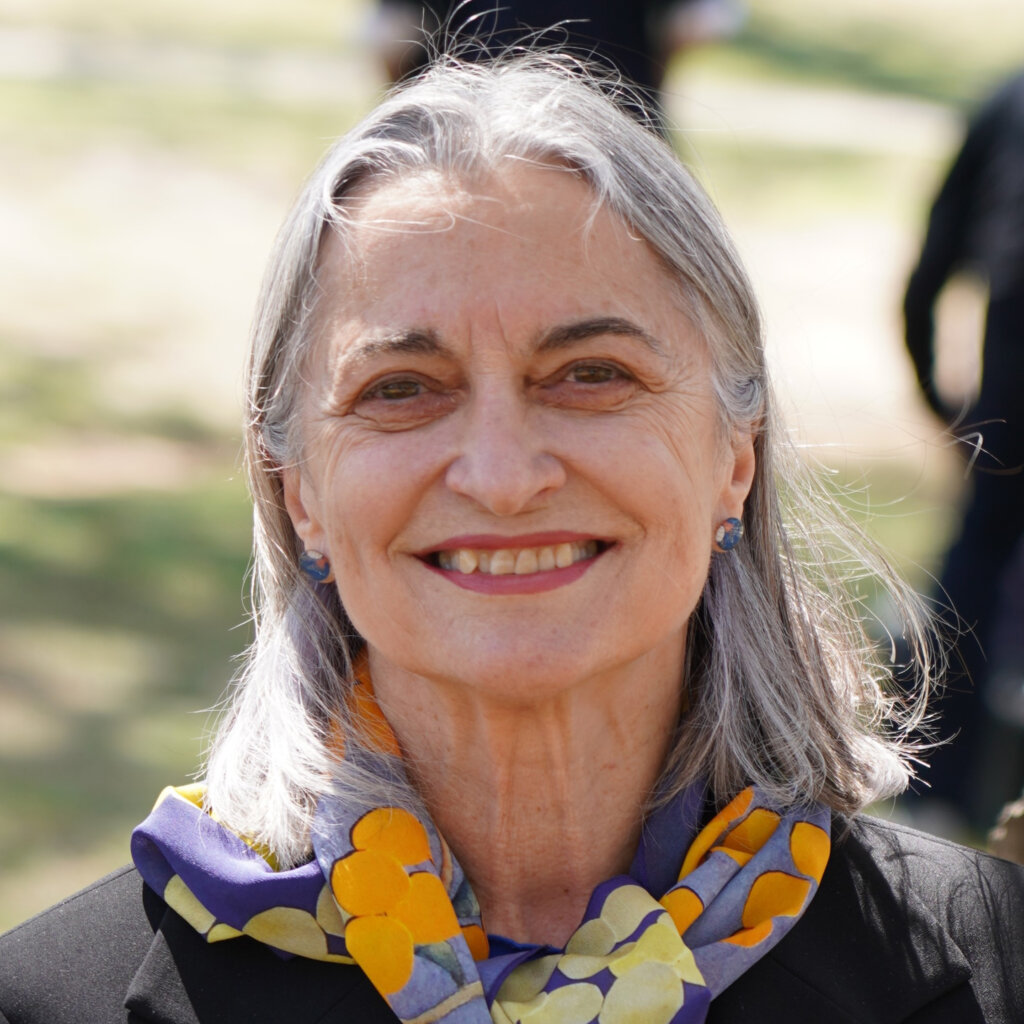
Frances Separovic
Professor Frances Separovic AO FAA is a Biophysical Chemist and deputy director of the Bio21 Institute, University of Melbourne, and Foreign Secretary of the Australian Academy of Science. Her research group studies peptide antibiotics and toxins in biological membranes. She is a member of the InterAcademy Partnership Advisory Committee, and the International Union of Pure & Applied Chemistry Science Board. Frances has served as President of the Biophysical Society; President of Australian New Zealand Society for Magnetic Resonance; General Treasurer of Royal Australian Chemical Institute; and Council member of International Union of Pure & Applied Biophysics.
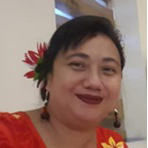
Fuimaono Elisapeta Mauai
Fuimaono Elisapeta Mauai holds a Maters of Technology, from the Queensland University of Technology (QUT) – Australia. With over 18 years of dedicated service at the National University of Samoa (NUS), she has made significant contributions to both academic excellence and technological advancement. Fuimaono is the head of the Computing Department with precision and innovation, overseeing curriculum development, faculty collaboration and student engagement. She is also the coordinator of the NUS-Cisco Academy leading the NUS Cisco hub for cutting-edge networking education. As a team leader, she has guided her colleagues and students to achieve remarkable outcomes.
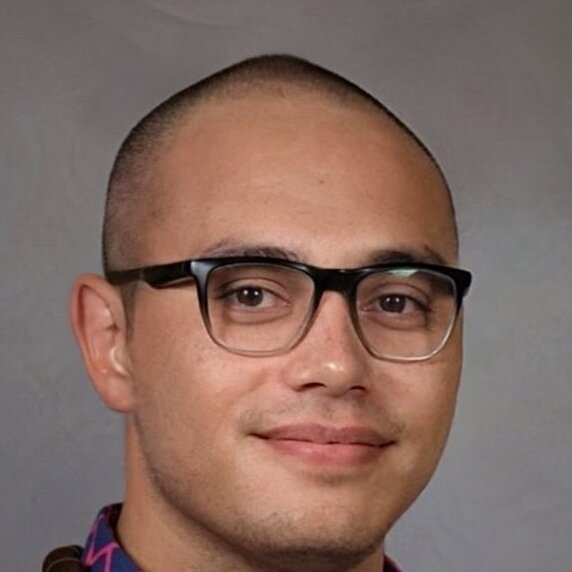
Gordon Dow
Gordon is a senior lecturer at the Faculty of Health Science of the National University of Samoa. He is a psychologist with graduate degrees in clinical sciences and public health. His work entails coordinating the Bachelor of Health Science programme at the University. Gordon’s research interests include child and adolescent mental health, learning and development.
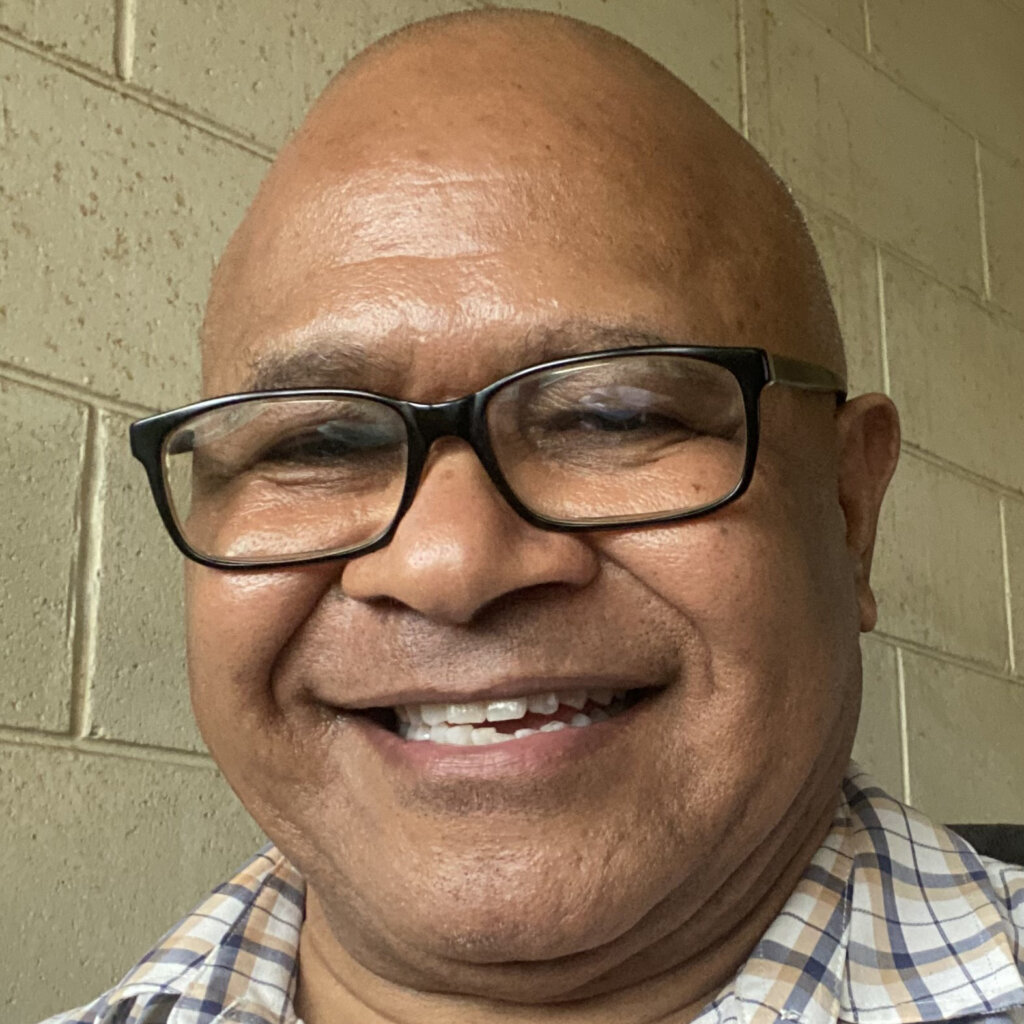
Graham Sem
Graham Sem is a Geographer with over 25 years’ experience in the academic, climate change and development sectors. He has coordinated, led and provided climate change technical, strategic and policy inputs to Pacific island countries. He has served as a Scientific Adviser to the Pacific Islands Climate Change Assistance Programme, based at the Pacific Regional Environment Programme and as a Senior Programme Officer at the Secretariat of the United Nations Framework Convention on Climate Change (UNFCCC) and the Secretariat of the Pacific Community. He is currently a Professor of Geography and Deputy Dean of School of Natural and Physical Sciences at the University of Papua New Guinea.
Graham has been a Convening Lead Author and Lead Author for the IPCC Third and Fourth Assessment Reports. He was awarded a Nobel Peace Prize in recognition of his contribution to the Intergovernmental Panel on Climate Change Assessment of the Global Climate System. He obtained a BA Honours Degree at the University of Papua New Guinea, a Masters from the University of Hawaii and a Doctor of Philosophy from the University of Auckland, New Zealand.
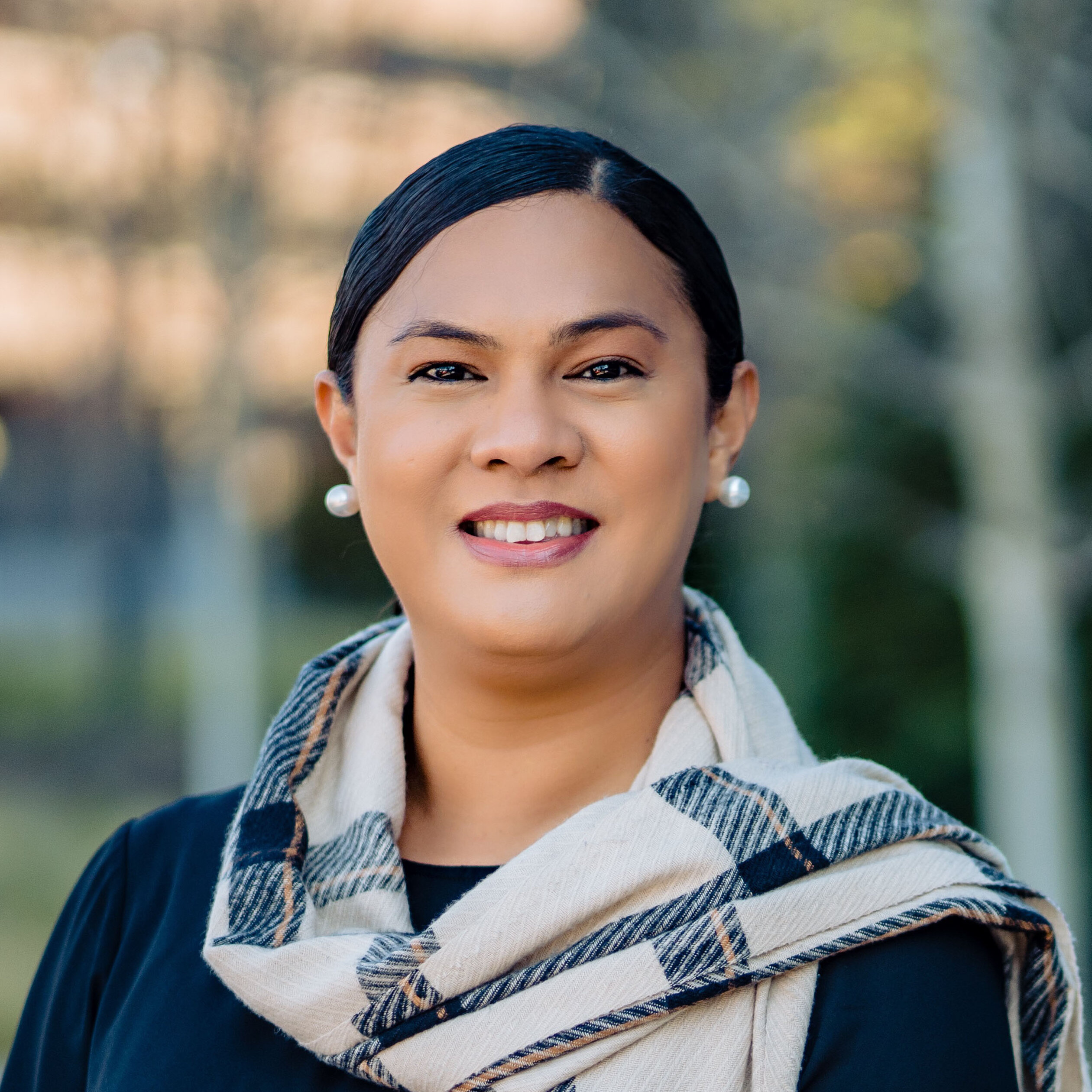
Jaye Moors
Dr. Jaye Moors, of Samoan descent, earned her undergraduate degree in Anatomy and Structural Biology and a Ph.D. in Biochemistry from the University of Otago, NZ. She is a geneticist by training and her research interests include the genetics of obesity, cardiometabolic diseases, and inflammatory conditions, particularly within underrepresented populations which include Pacific communities. Currently, she works as a Scientist at Variant Bio a U.S.-based genomics-driven drug discovery company located in Seattle, Washington. Dr. Moors remains dedicated to advancing genetic research for the betterment of human health.
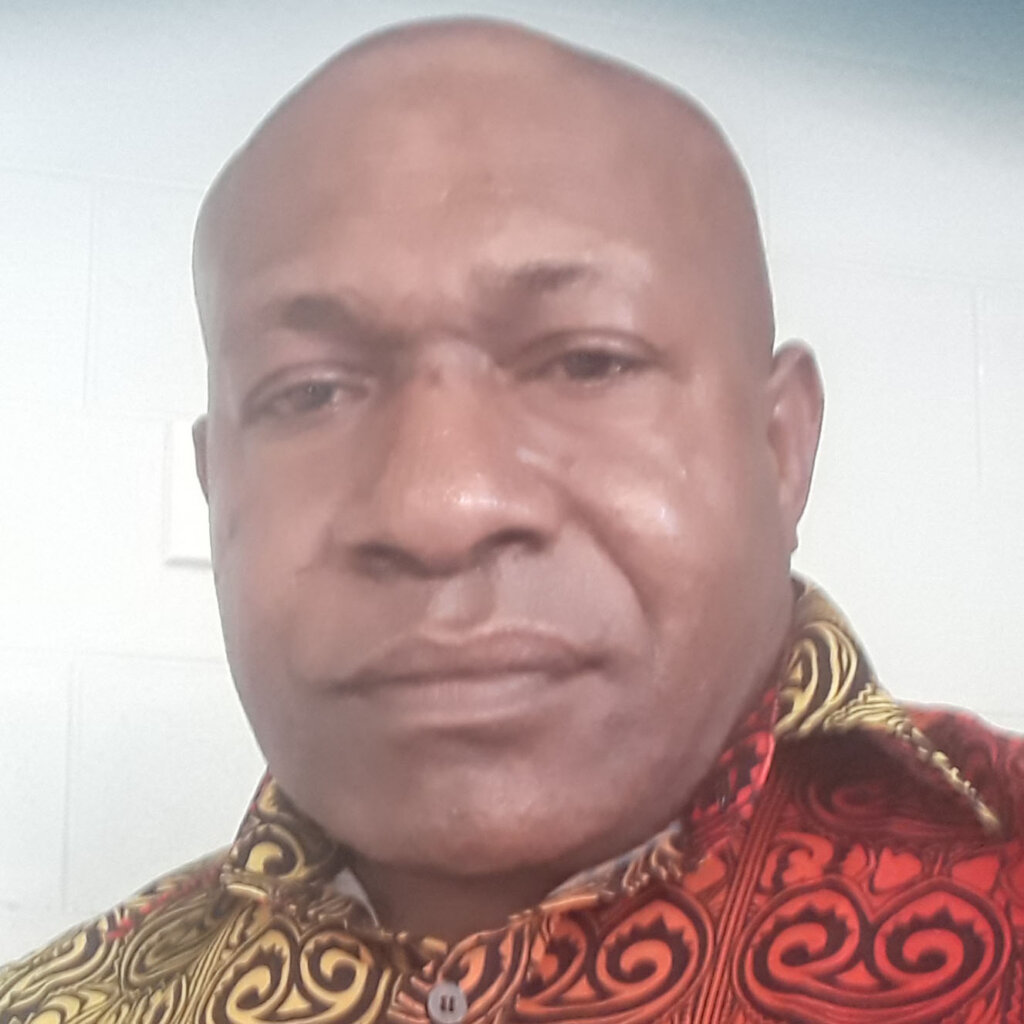
Joseph O. Espi
Joseph Onglo Espi is the Associate Professor and Head of Earth Sciences Division and Director of the Center for Disaster Risk Reduction in the School of Natural and Physical Sciences at the University of Papua New Guinea, Port Moresby, Papua New Guinea. Joseph’s area of interest covers mineral systems and exploration; exploration geochemistry; hard-rock mining; alluvial gold exploration, development and mining; environmental geology and geochemistry; climate change impact and adaptation; geohazards; disaster risk reduction; and risk management. He has undertaken collaborative research with Mineral Resources Authority of Papua New Guinea, Papua New Guinea Department of Mineral Policy and Geohazards Management; Geoscience Australia; and University of Leicester and Met Office in the United Kingdom. He received BSc and BSc Honors Degrees in Geology from the University of Papua New Guinea, and MSc and PhD in Earth Evolution Sciences from the University of Tsukuba in Tsukuba, Japan.
Karaponi Okesene-Gafa
Dr Karaponi Okesene-Gafa is the Senior Lecturer in the department of Obstetrics and Gynaecology at the University of Auckland. Fellow of the Royal Australia and New Zealand College of Obstetrician and Gynaecologists, and working at Middlemore hospital, South Auckland, New Zealand. She completed her PhD in 2022. Her research interests cover obesity, excessive weight gain in pregnancy and diabetes. She is of Samoan, Niuean and Cook Island descendant.
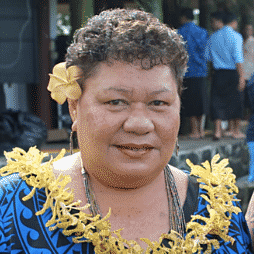
Karoline Afamasaga-Fuata’i
Karoline is currently Professor of Mathematics and Mathematics Education at the National University of Samoa, a job she returned to after serving 6 years as the Chief Executive Officer of Samoa’s Ministry of Education, Sports & Culture (February-2016 – February-2022). Her research interests include analyses of mathematics student performance at all levels to identify ways students can engage more meaningfully in learning mathematics and solving problems more effectively. Furthermore, Karoline conducted research with primary and secondary students/teacher trainees while Associate Professor (Mathematics Education) at the University of New England, Armidale, Australia (2004 – 2009). Karoline looks forward to the inaugural 2024-launching and implementation of the NUS Post-Graduate Studies in Mathematics and Mathematics Education for the many practicing mathematics teachers and lecturers in need of higher qualifications.
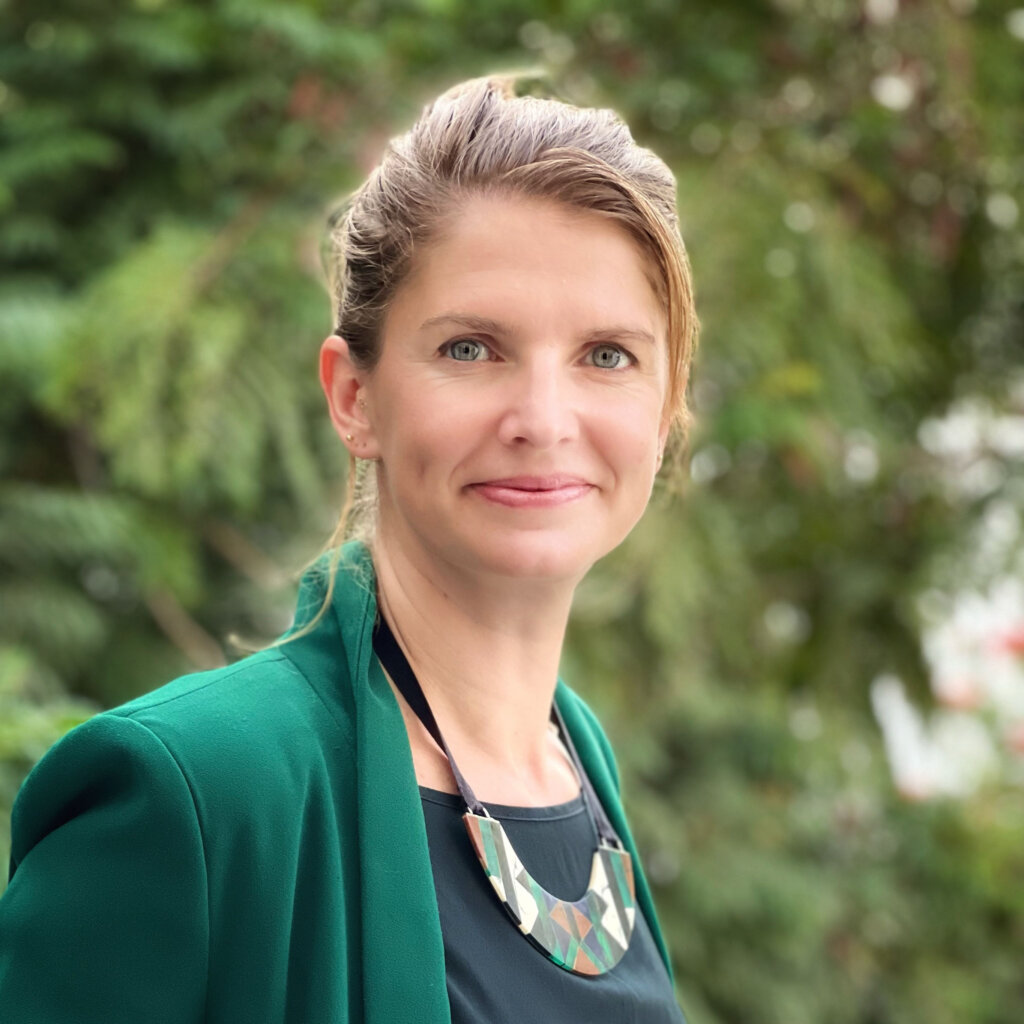
Leslie Vandeputte
Dr. Leslie Vandeputte is an anthropologist and a sociolinguist. She obtained her PhD from the School of Advanced Studies in the Social Sciences (École des hautes études en sciences sociales – EHESS), in 2014, in France. Before joining the National University of Vanuatu as the Director of the Language Centre in 2023, she was an assistant lecturer at the American University in the Emirates (2018-2022) and at the University of New Caledonia
(2014-2018). Her research interests focus on identification processes (particularly through linguistic practices), linguistic ideologies, and the links between national language and national identity. She has lived and worked in the South Pacific for nearly 10 years, is a member of the Association for Social Anthropology in Oceania and a member of the editorial board of the Journal de la Société des Océanistes. In 2021, she co-edited a book on creoles, pidgins and linguistic ideologies in the Pacific islands. She has also published a number of articles in academic journals.

Lineta U. Tamanikaiyaroi
Lineta U. Tamanikaiyaroi have been working in the Pacific as a Teacher of Agriculture and Horticulture, managing projects for the disadvantages in the western side of Fiji ,a trainer for women in the rural communities for agri-business, director of Oloamanu centre for professional development and continue education and as dean for the faculty of technical education at the National University of Samoa.
Her education background is in the area of Agriculture Science, Education and Environmental Law. Her love is for the Pacific region environment where agriculture is mostly practiced and her strong belief that science should be taught in a more practical way in any school for pacific students to improve their understanding of complex matters.

Luamanuvao Dame Winnie Laban
Luamanuvao Dame Winnie is married to Dr Peter Swain. A social work graduate from Victoria University of Wellington, worked as public servant community work probation officer and school counsellor. Bestowed with chiefly title Luamanuvao from her mothers village. A former member of NZ parliament. Assistant VC (Pasifika) at Victoria Uni of Wellington. Contributed significantly in providing strategic leadership for Pasifika students and staff in advocation for policy initiatives that enhances their welfare and especially the success of Pacific Islanders at University. Honoured by Queen Elizabeth II with the award of Dame Companion of NZ (DNZM) for services to Education and the Pacific Island Community. Currently a patron or member of wide range of public service, academic and community organizations in NZ and engaged in numerous capacities (NUS Council 2012-2021, Institute of Judicial Studies Board, Creative NZ Arts Council, PNG, Pakistan, Tanzania Commonwealth Secretariats Etc. She also received numerous honours and awards.
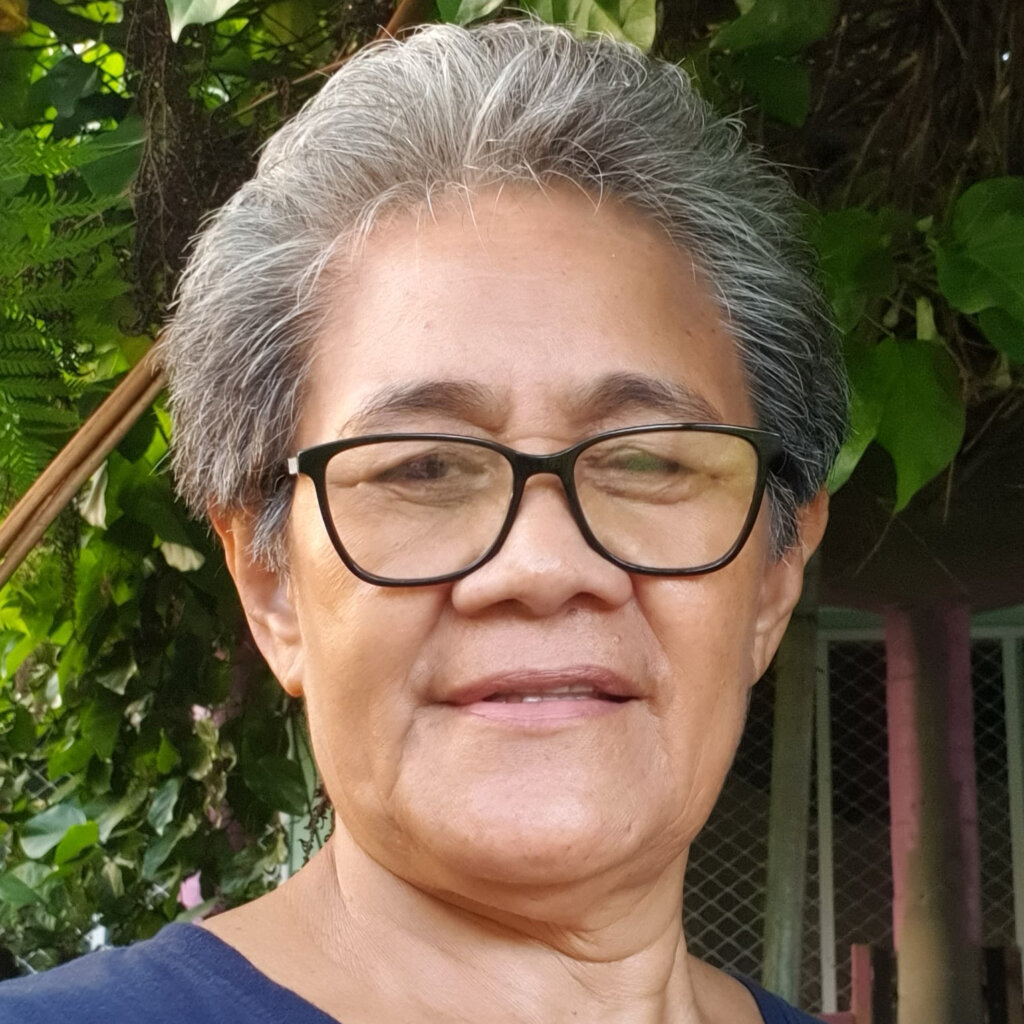
Maatasesa Samuelu-Matthes
Maatasesa spent more than 30 years in the health sector as a health processional before shifting to the education institution in the last six years. Her specialties in health include nursing, primary health care, Public/community health and health care leadership and management.
In health science, she advocates for ethical and legal aspects in health, evidence-based health care, health regulation and policies assuring safety of health consumers. She also teaches in the School of Nursing in the areas of ethical and legal aspects in nursing and nursing leadership and management.
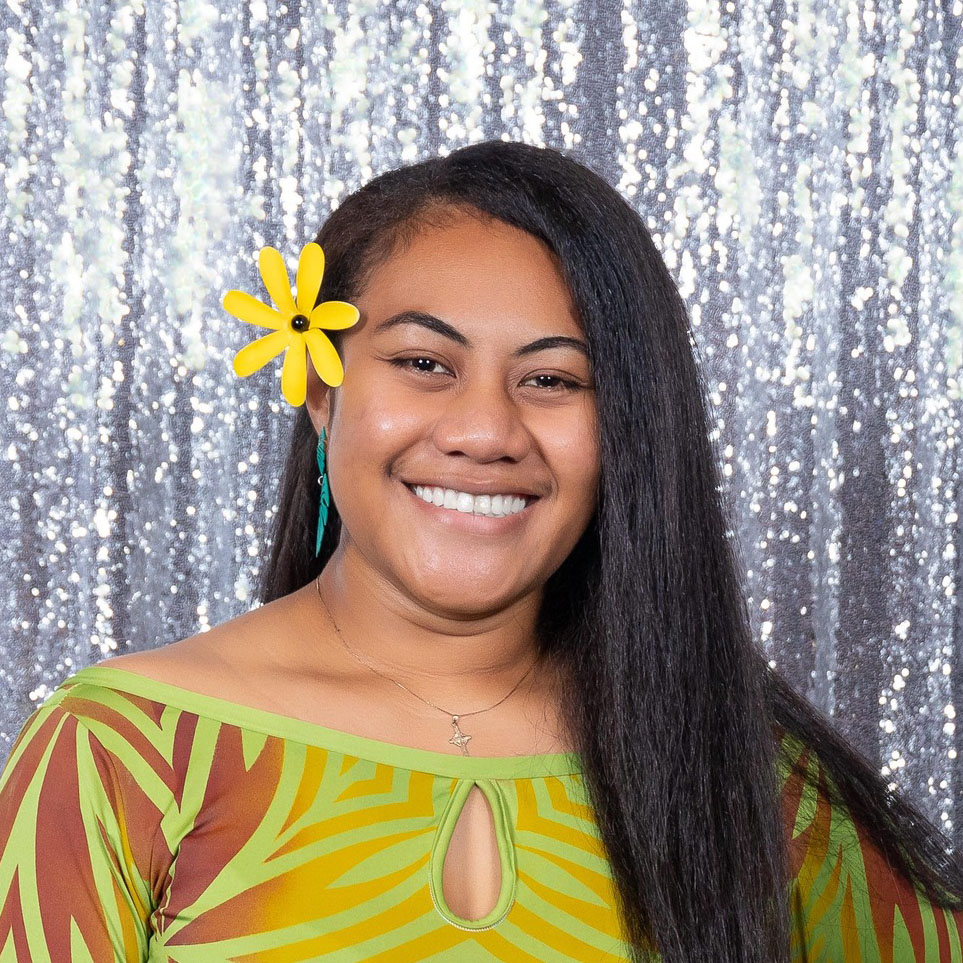
Maria Karameli Tele’a
Maria Karameli Tele’a, graduated with a Bachelor of Science in 2022 and currently studying for a Postgraduate Diploma in Science at the National University of Samoa (NUS). She did a preliminary study for the undergraduate level regarding the possible sources of dioxins and furans in a Samoa Village and was fortunate to present her findings at the Measina Conference in 2021. She works at the American Samoa Environmental Protection Agency (AS-EPA) in American Samoa. She is an environmental specialist/regulatory officer for the Water Quality Branch. She is able to excel in her job because she is a product of NUS.
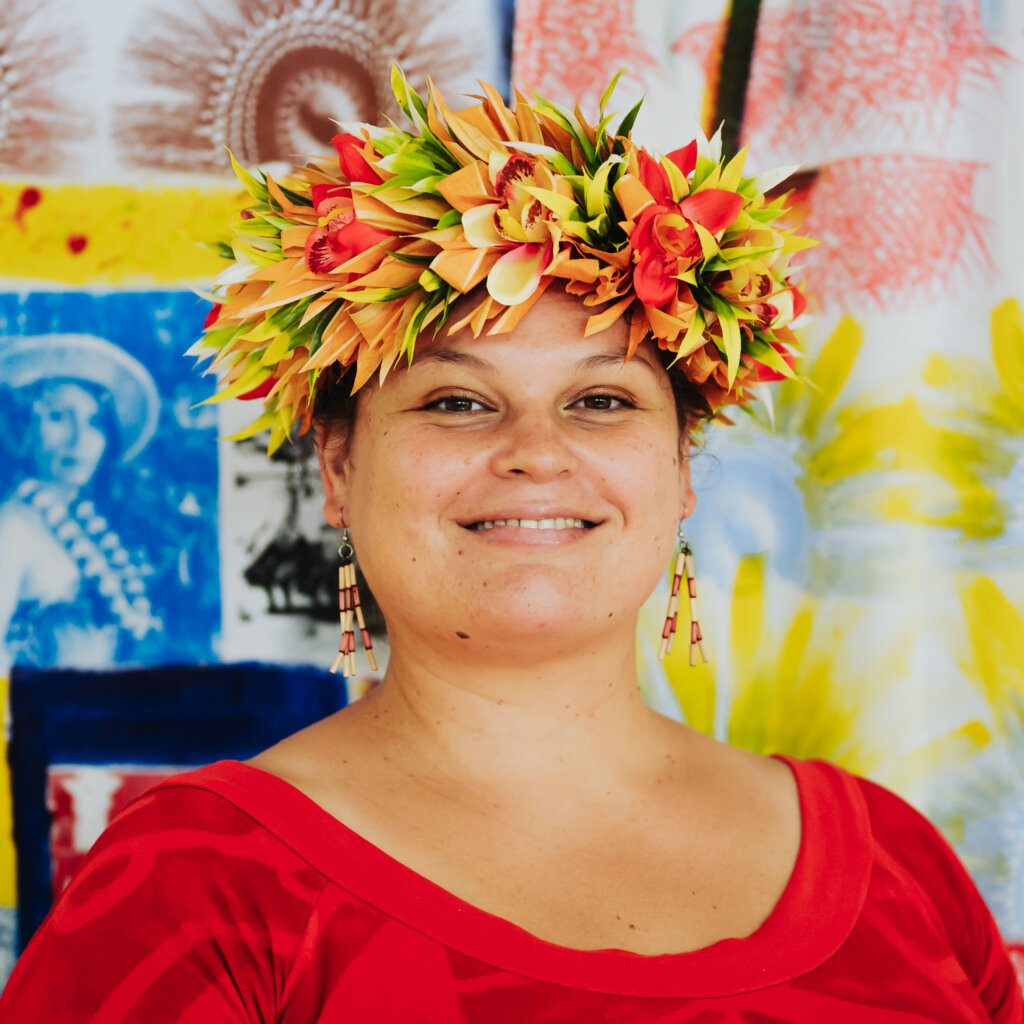
Merita Tuari’i
Merita is of Cook Islands Māori and New Zealand Māori heritage, currently working as a senior research fellow at Te Puna Vai Mārama. She has a Bachelor of Arts in Japan Studies from the University of Otago and a Master of Science in Asia Pacific Studies (International Relations specialisation) from Ritsumeikan Asia Pacific University. She has lived, studied and worked in Japan at different points in her life, and interned at the Sasakawa Peace Foundation in 2019. She has previously worked in government and non-government roles in the Cook Islands, including consulting on the review of the Cook Islands National Sustainable Development Plan 2016-2020. At TPVM she conducted research on knowledge and use of climate and weather information and services, co-authored a paper on the Cook Islands response to COVID19, and is currently conducting research on gender and governance in the Cook Islands, and public experience and use of Cook Islands public services.
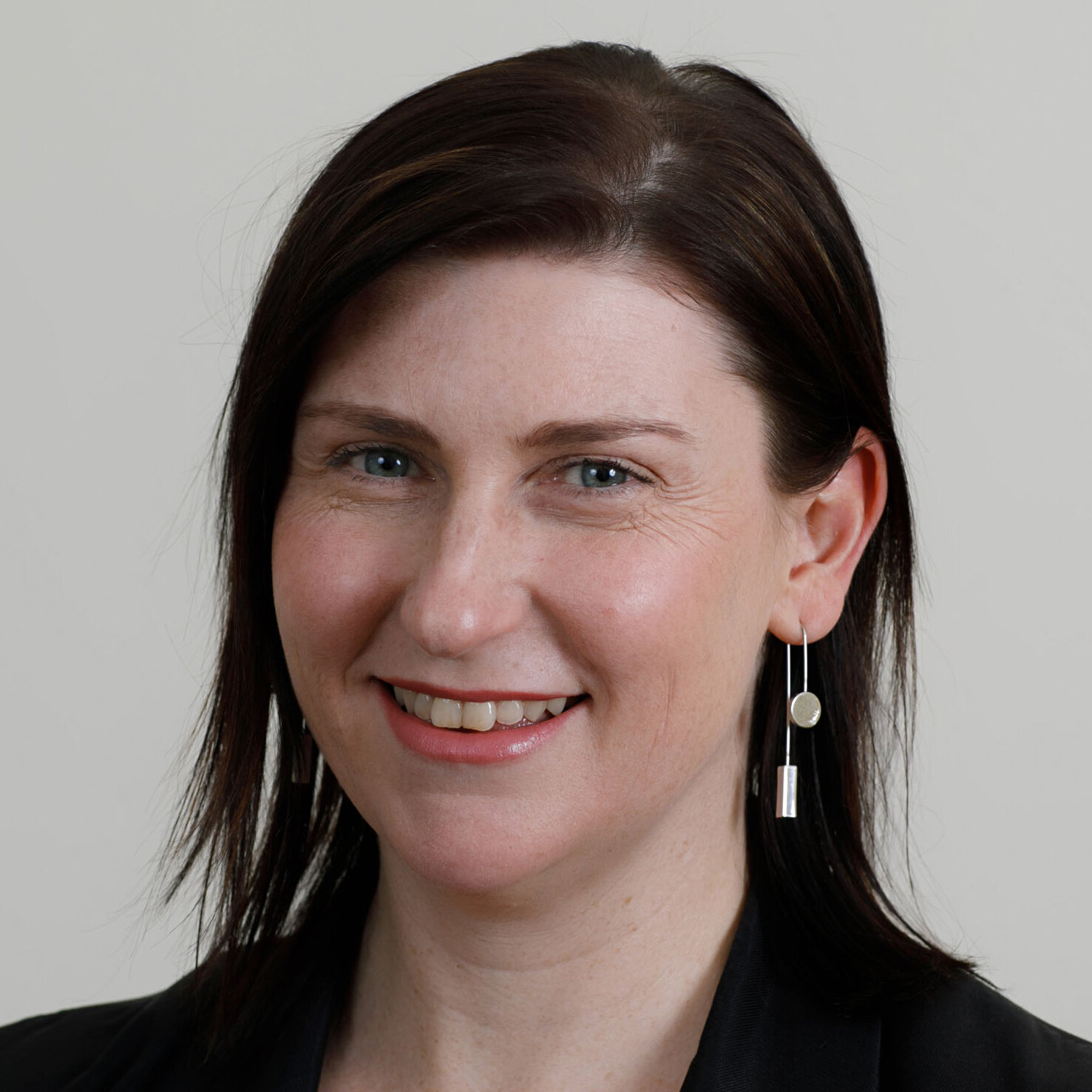
Michelle Bruce
Michelle Bruce is Director of Fellowship, International & Awards at the Academy of the Social Sciences in Australia. Michelle oversees the Academy’s annual Fellowship nomination and election process and the Academy’s international program, including collaborative research funding programs with international social science academies and governments. Michelle is also Secretary-General of the Association of Asian Social Science Research Councils (AASSREC). She manages the AASSREC Secretariat and oversees the implementation of its programs to develop and promote the social sciences in Asia and the Pacific and strengthen co-operation between social science organisations in the region.
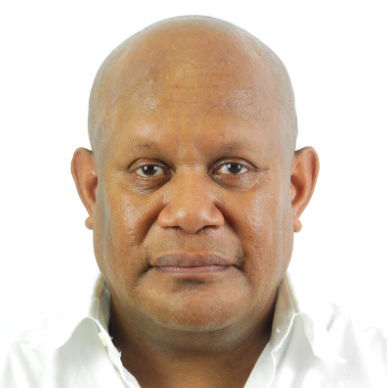
Michael Otoara Ha’apio
Michael Ha’apio is the Commonwealth National Climate Finance Advisor for Solomon Islands as part of the Commonwealth Climate Finance Access Hub (CCFAH), a position he held since 2021.
Dr Ha’apio has more than 10 years of experience in climate change adaptation planning, community research, technology needs assessment, resource management, climate finance in the Pacific. This includes undertaking research on community adaptation to climate induced disaster events mainly in Solomon Islands. Dr Ha’apio was engaged as a TNA adaptation consultant for the Republic of Nauru from 2019 to 2020 and holding the same for Solomon Islands, 2022-2024.
Michael was also a former fellow at the University of the South Pacific (USP) based in Suva, Fiji, where he taught Climate Finance and Adaptation Project Design. He was also instrumental in development of the first ever Masters in Natural Resource Management at the Solomon Islands National University. Dr Ha’apio was a double Vice Chancellor’s Award recipient for Best Student Research at USP, for 2015 & 2019 respectively.
Currently Dr Ha’apio, is the focal point for Blue Nature Alliance Project for Solomon Islands, assisting the international consultants to design and develop a blue sustainable financing for the Solomon Islands. Besides, Dr Ha’apio is also a founding Board Member for the Coral Triangle Conservation Trust Fund, an entity formed under the CTI based in Indonesia.
Lastly, Currently Dr Ha’apio also teaches Professional Diploma in Business Management with the University of the South Pacific, at Solomon Islands Campus.
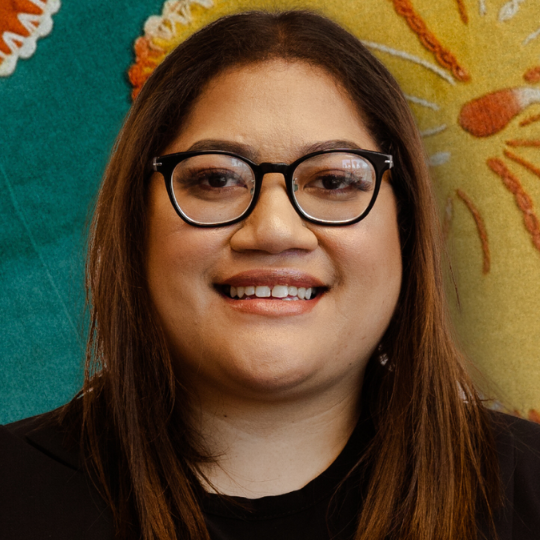
Nalei Taufa
Nalei Taufa is from Tongatapu (villages of Pangai Ha’apai, Tufuenga Kolomotu’a, ‘Ohonua ‘Eua, and Kolonga). Her background is in health science and public health with a Bachelor of Health Science, Masters of Public Health (Hons), and a Bachelor of Science (Hons) from the University of Auckland, majoring in Psychology. She is currently the Research Operations Manager at Te Poutoko Ora a Kiwa – Centre for Pacific and Global Health and a Doctoral Candidate in Public Health.
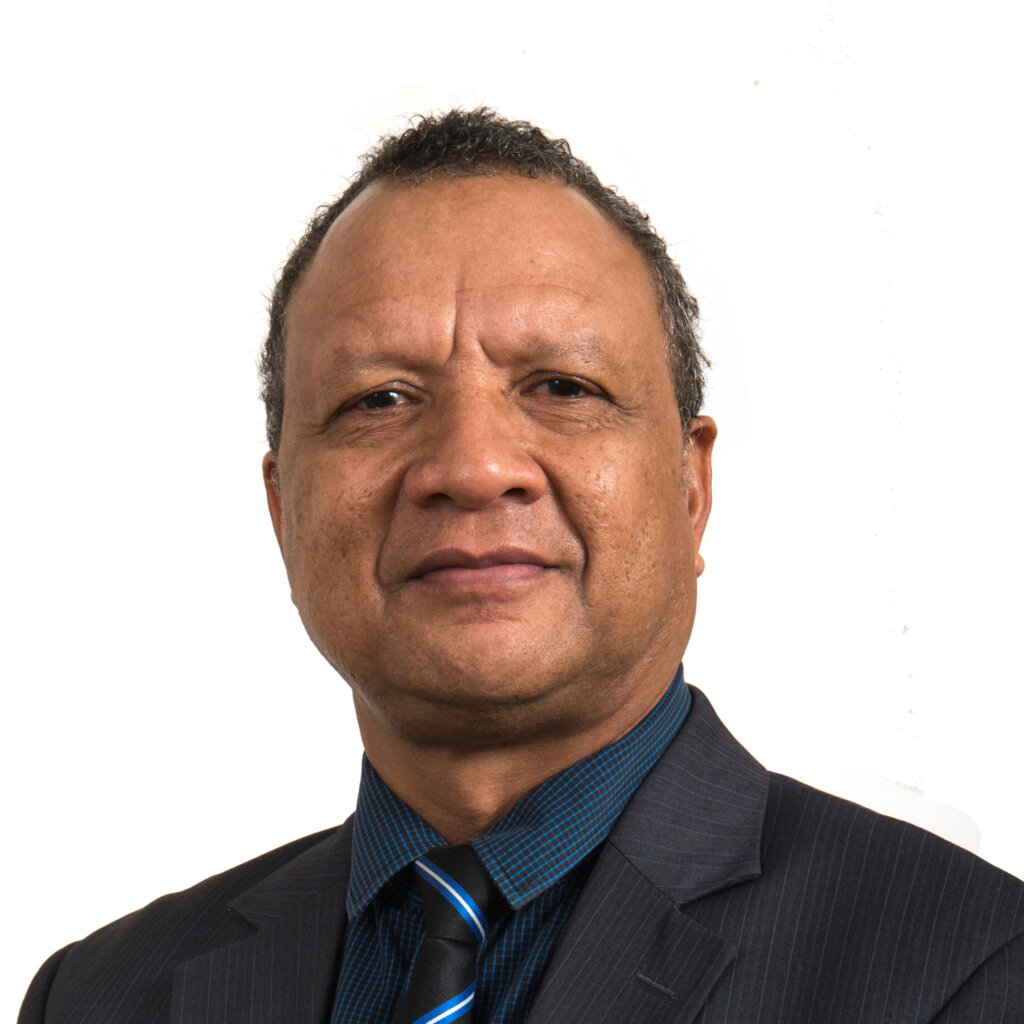
Ora Renagi OL
Professor Ora Renagi OL is an alumnus of University of Papua New Guinea (UPNG) with BSc in Physics. He was employed by the PNG University of Technology (PNGUoT) as a tutor in the Applied Physics Department and supported developing his career. He got his MSc and PhD in Applied Physics from James Cook University, Australia. He was appointed Deputy VC in May 2014 and VC in April 2019.

Pule Mariota
Pule Mariota is currently working at the National University of Samoa, through the Faculty of Education as a Maths and Science Education lecturer.
He holds a MEd, (NUS)BSc (Waikato Uni), PostGradDip. Ed (NUS), Graduate dip. Teaching (Auckland Uni.). DipEd.(STC).
He has 30 plus years of teaching experience in the field of science and maths.
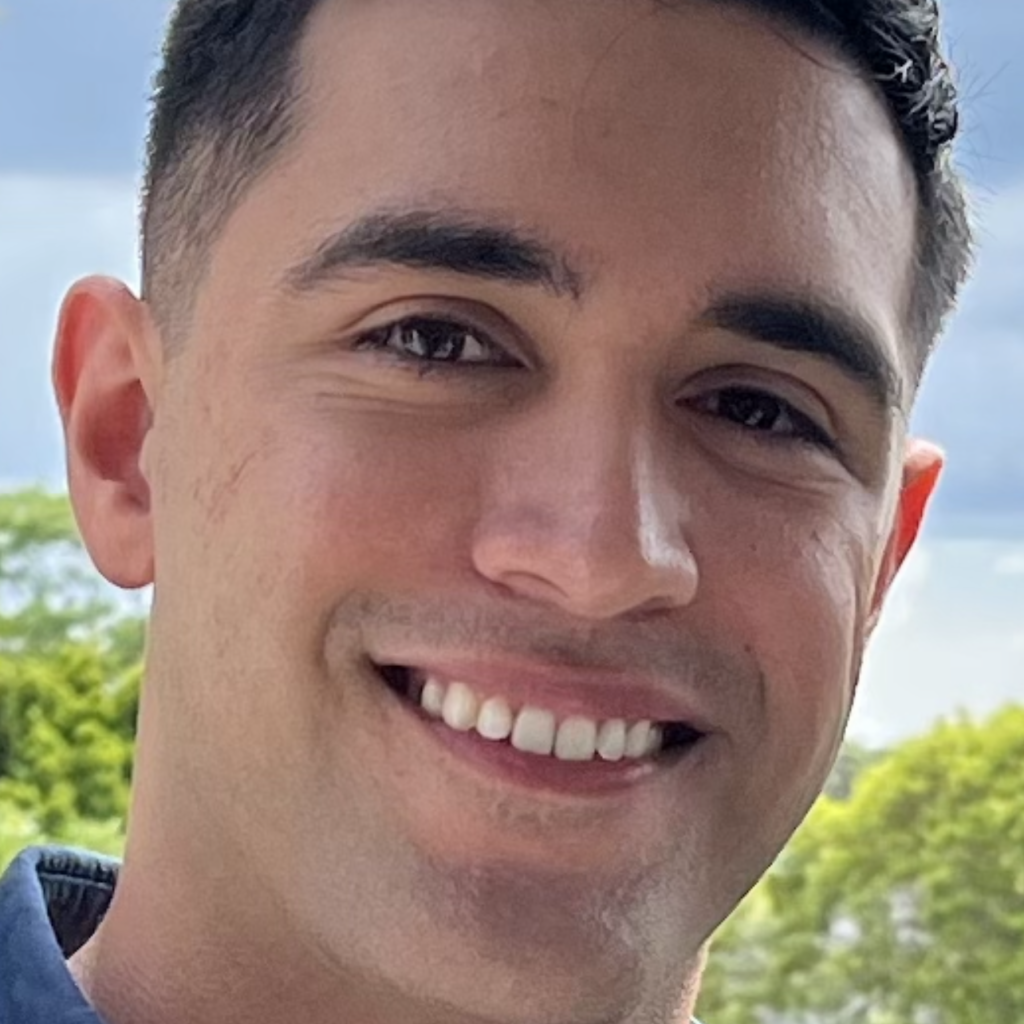
Renato Pitesa
Dr Renato Pitesa is of Samoan and Croatian descent. He graduated from the University of Auckland with a Bachelor of Medicine and Bachelor of Surgery and is pursuing a Surgical PhD next year. He is currently working as a junior doctor at Middlemore Hospital, Auckland, New Zealand.
Roannie Ng Shiu
Dr Roannie Ng Shiu’s research to date has focused on Pacific health equity and social justice for Pacific communities in the region and globally. She is also a Pacific evaluation specialist for a New Zealand based company, Malatest International. She was previously with the Department of Pacific Affairs at the Australian National University working on collaborative Pacific research and teaching programs. What motivates her the most is helping people, particularly young people and those most vulnerable thrive.
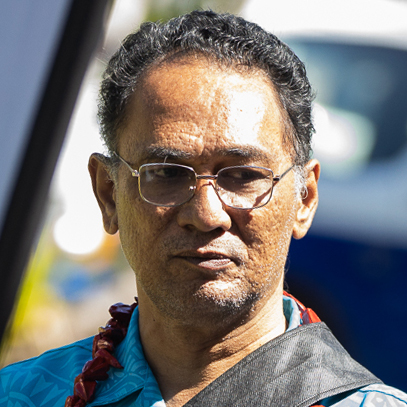
Robert E Thomsen
Auliaimalae Tagloa Dr Robert Thomsen has held the role of Samoa’s Deputy Director General, Public Health Services since 2019.
After graduating with Bachelor of Medicine & Bachelor Surgery from the University of South Pacific, Fiji, his initial role as House Surgeon in Tupua Tamasese Meaole Hospital in Apia was followed by a variety of Medical Officer roles, and then 12 years as Assistant CEO, Health Service Performance and Quality Assurance at the Ministry of Health from 2007 to 2019, Samoa.

Robert Karoro
Robert Karoro taught PG Diploma Science (Geoscience) at the USP as a tutor from 2012-2017 and then moved to Kiribati to work for government (Office of the President). He later founded a Mobility Research Unit in Kiribati.

Ruth Moghbelpour
Ruth completed Nursing Degree studies in Australia and Canada before coming to Samoa in 1975. In 2009, she completed Post-graduate studies in Not-for-Profit Management at AUT in Auckland. From 1984 until 2004 she was CEO of the Australian AESOP Volunteer Program in Samoa helping the commercial business sector. In 1999, she set up the Australian Youth Ambassador Development Program. In response to a continuing decline in science studies, she started the project IMAGINE Science and Technology Discovery Centre and Outreach Programmes collaborating with Ministry of Education, National University of Samoa, NGOs and others.
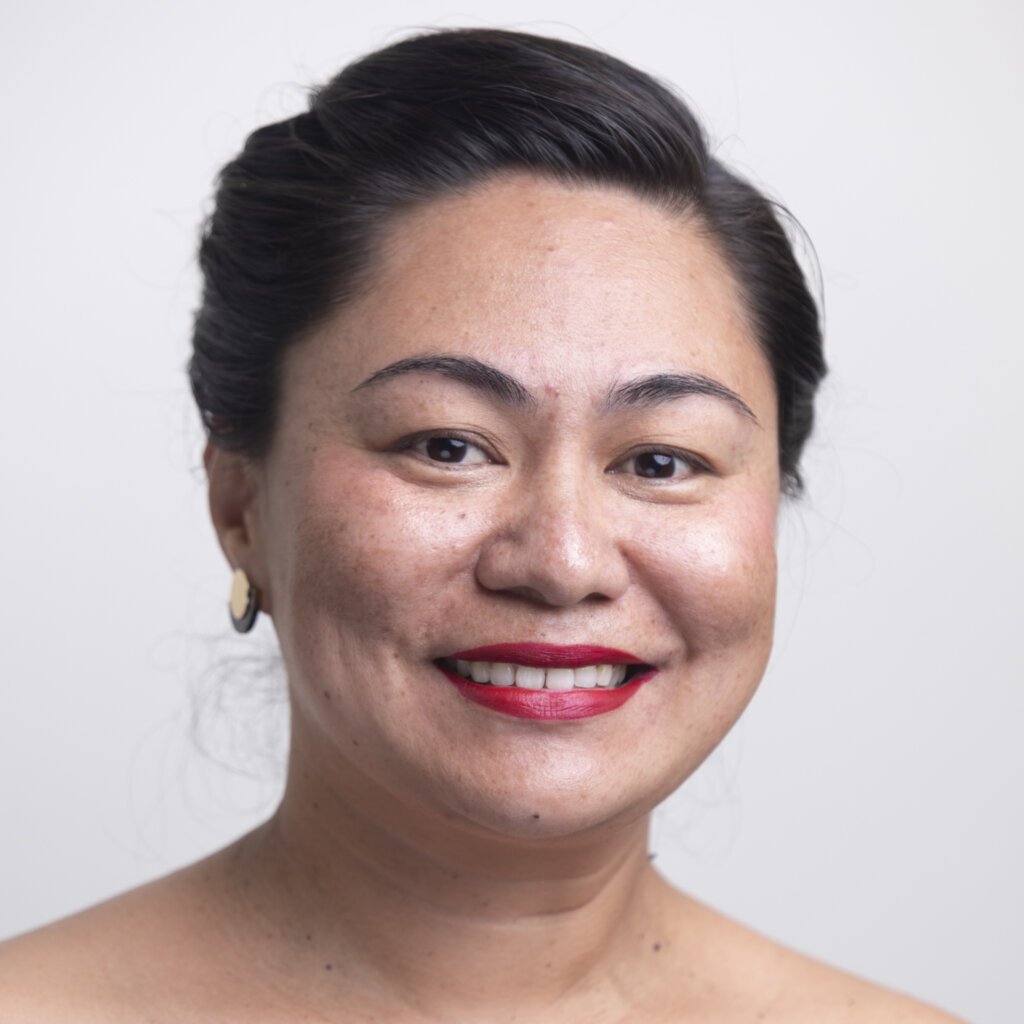
Seeseei Molimau-Samasoni
Dr. Seeseei Molimau-Samasoni is the Manager for the Plants & Postharvest Technologies Division (PPTD) of the Scientific Research Organisation of Samoa (SROS). She leads and oversees research projects funded through grants from Australia, New Zealand and the Samoan government focussing on traditional medicines, natural products, and agricultural postharvest research. Although technically trained in molecular bioscience, her research interests have diversified to systems/transdisciplinary research aimed to improve food security and nutrition security in Samoa and the Pacific.
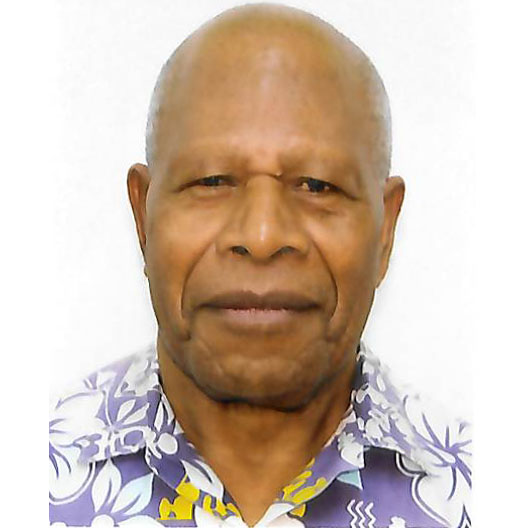
Simon Saulei
Professor Simon Saulei is currently the Executive Dean of the School of Natural & Physical Science, University of Papua New Guinea. Previously he was the Head of the Biological Sciences at the University. He was also the Director of PNG Forest research Institute before returning to UPNG. He is a forest Ecologist.
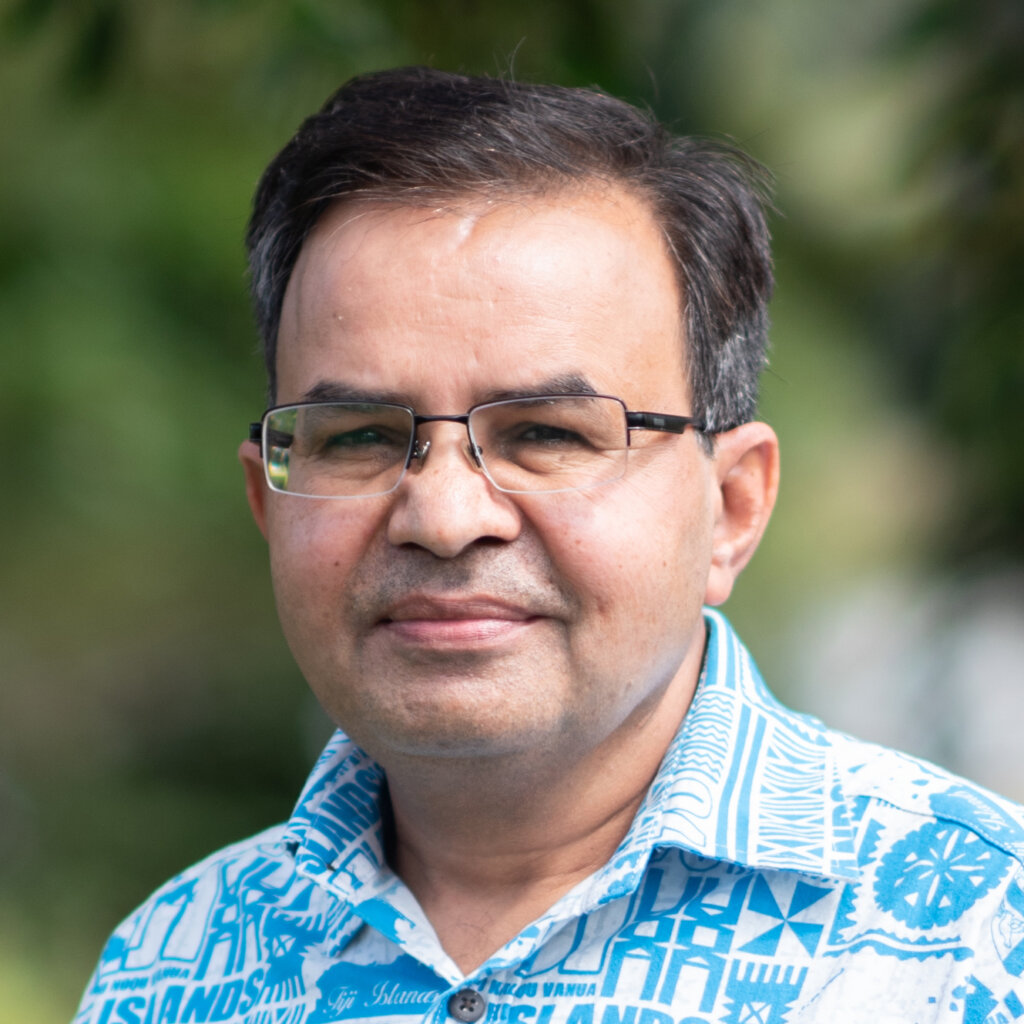
Sushil Kumar
Sushil Kumar is a Professor of Physics, and Director of Research at The University of the South Pacific (USP), Fiji. He has about 30 years of Academic experience. He has published over 80 papers in journals of international repute, presented more than 60 research papers in international conferences, and
chaired several sessions at international conferences. He is a member of several professional organizations such as the American Geophysics Union, International Union of Radio Science etc. He has supervised several research students and completed research projects. He is a strong believer of
research integrated and technology-driven education
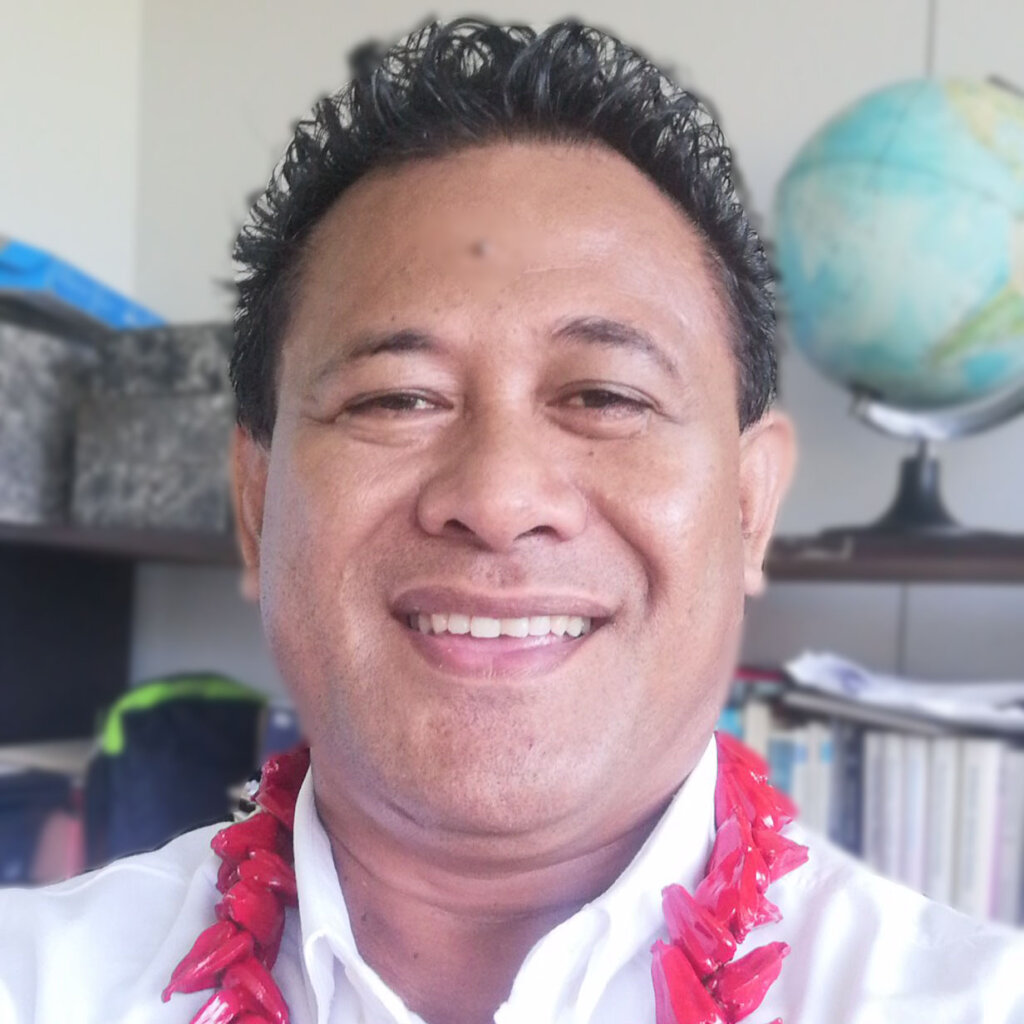
Tofilau Faguele Suaalii
Tofilau Faguele Suaalii is currently teaching at the Faculty of Education, at the National University of Samoa. He is teaching undergraduate and postgraduate courses: Science for ECE; Teaching Science at Primary Levels, Teaching Science at Secondary Teachers (Undergraduates); Issues in Science Education and Globalisation in Education (Postgraduates).
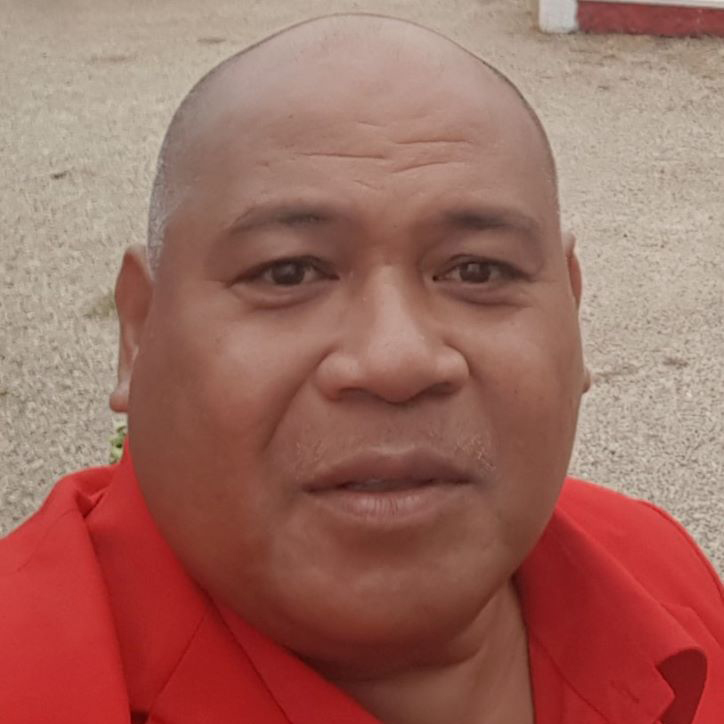
Vailala Matoto
Marine Scientist and Manager with 20+ years of hands-on experience in the Pacific region. Accumulated field experience, leadership, and management skills in the areas of fisheries, agriculture, environment, and climate change, working with communities, stakeholders, government agencies, and regional and international organizations. More than 20 years of experience in teamwork with people of different ethnic groups, cultures, and religious beliefs.
Organization and support
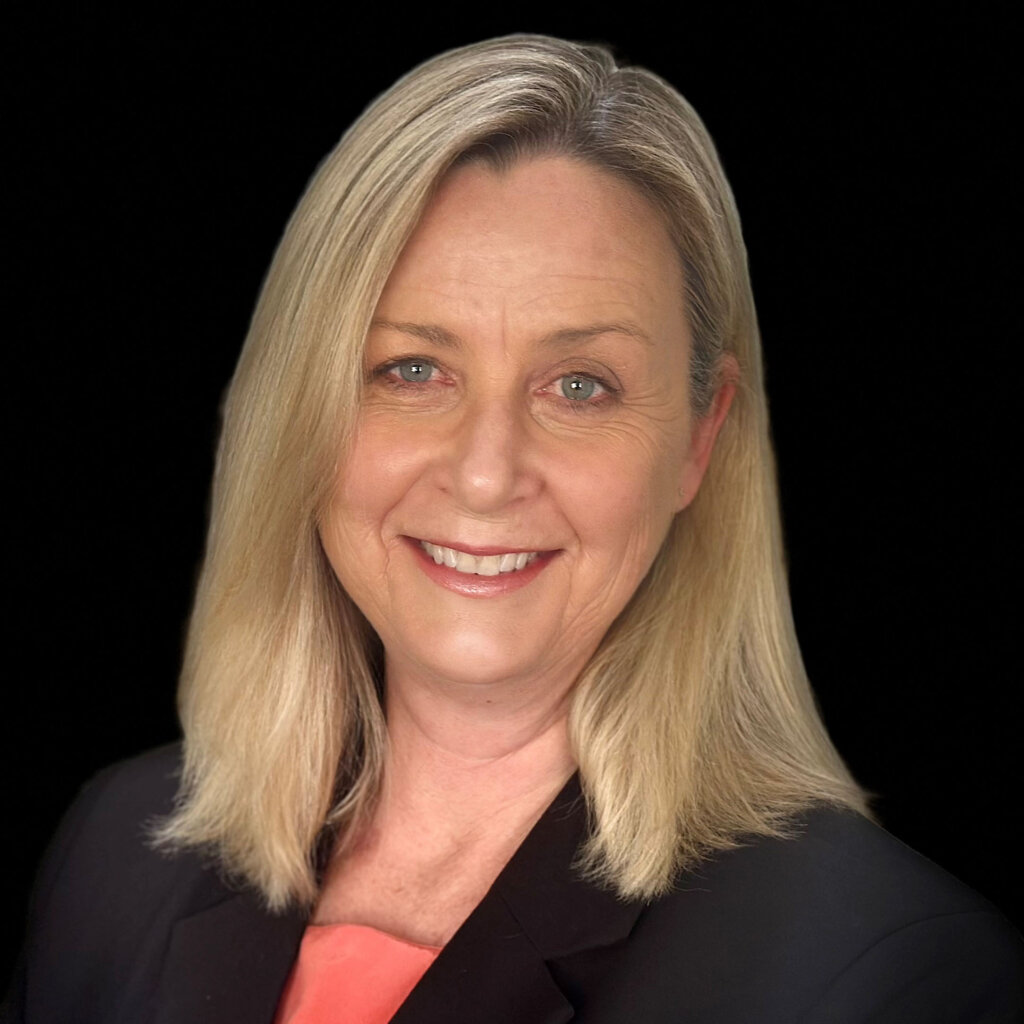
Aleta Johnston
Aleta is a strategic communications professional with 30 years of experience in the science, university and government sectors supported by a working knowledge in television and radio news. Aleta recently joined the Australian Academy of Science in a new role providing communication support for the strategic objectives of the International Science Council Regional Focal Point for Asia and the Pacific. This role works closely with the Academy’s Communications and Outreach team and the International Science Council Communications team in Paris.
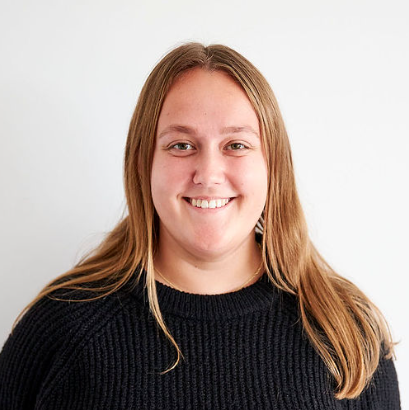
Emily Strong
Emily is Sir Peter Gluckman’s executive assistant. She has a Bachelor of Commerce from the University of Auckland.

Taema Imo-Seuoti
Professor Taema Imo-Seuoti is the Dean of the Faculty of Science at the National University of Samoa.
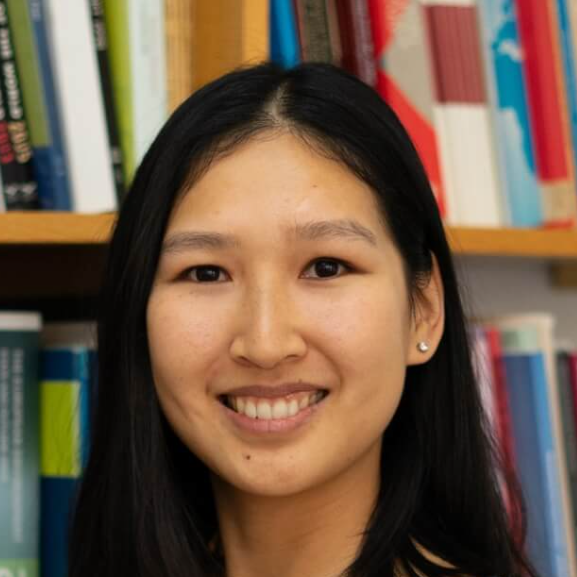
Zhenya Tsoy
Zhenya joined the ISC in 2019 to support the communications team with everything digital. Born and raised in Central Asia, she later lived, studied, and worked in the US, the UK, and the Czech Republic, before permanently settling in France. Her expertise is in communications, with a focus on the non-profit/development sector.